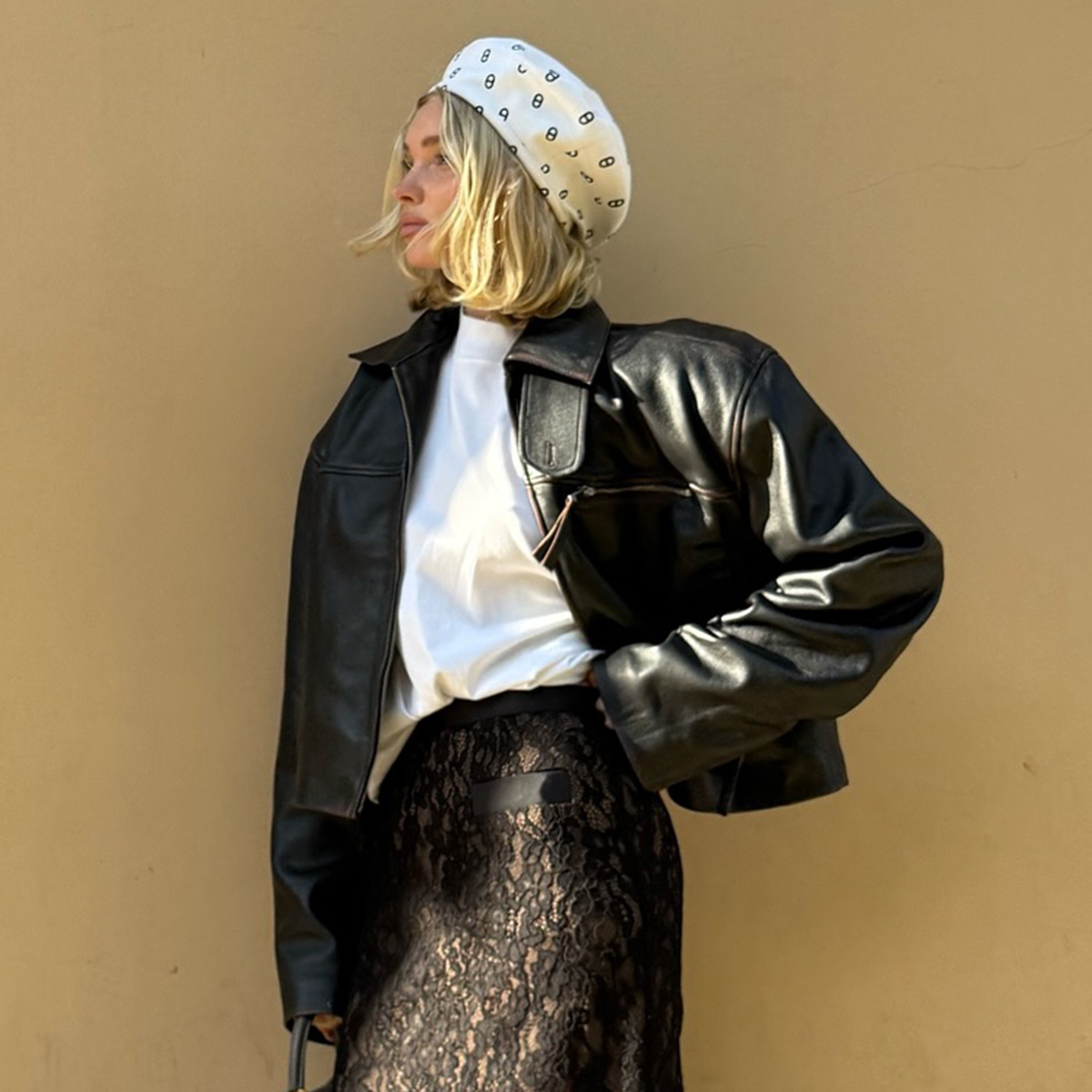I Found the Most Sustainable Denim Brands in the Game
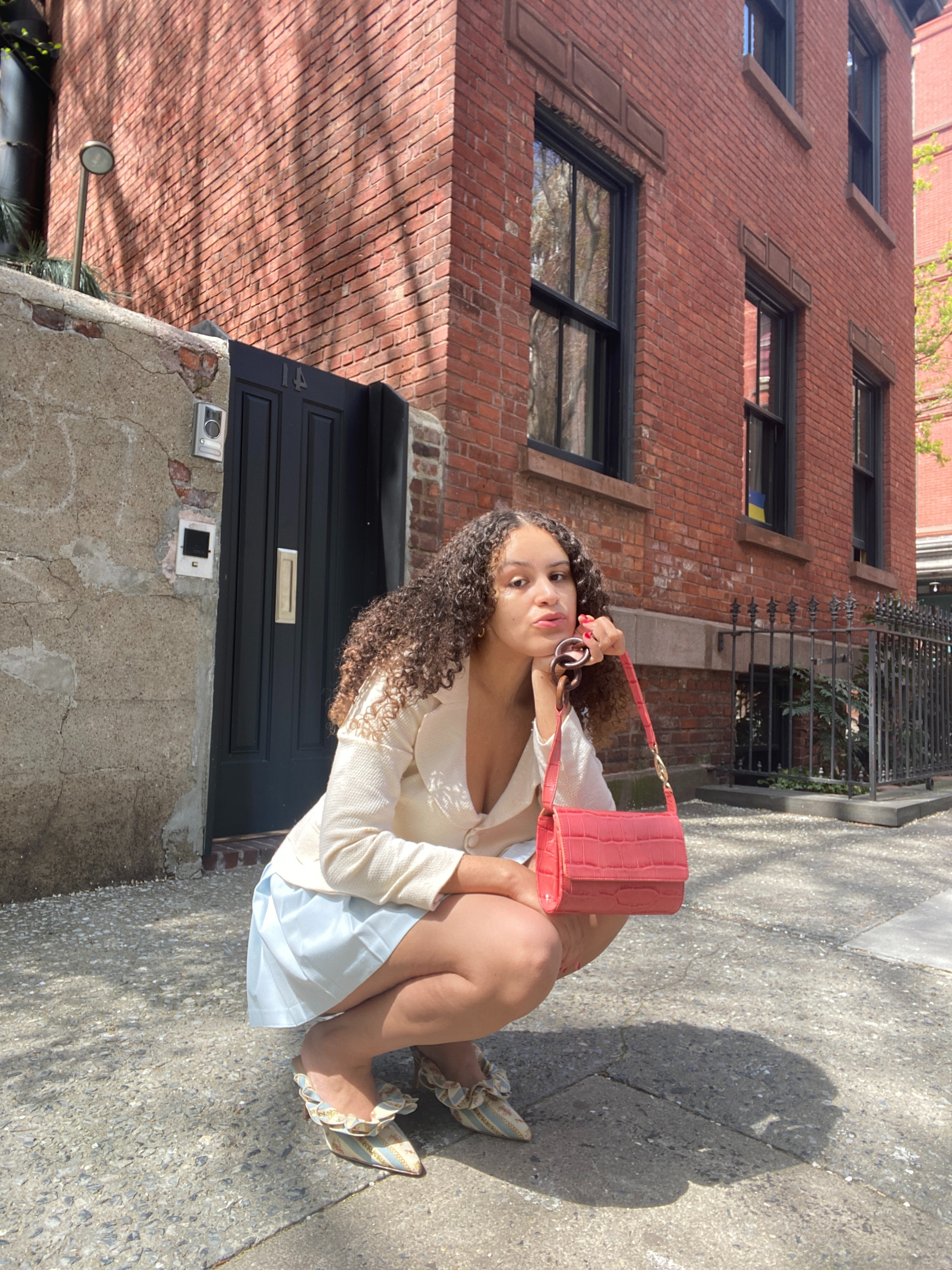
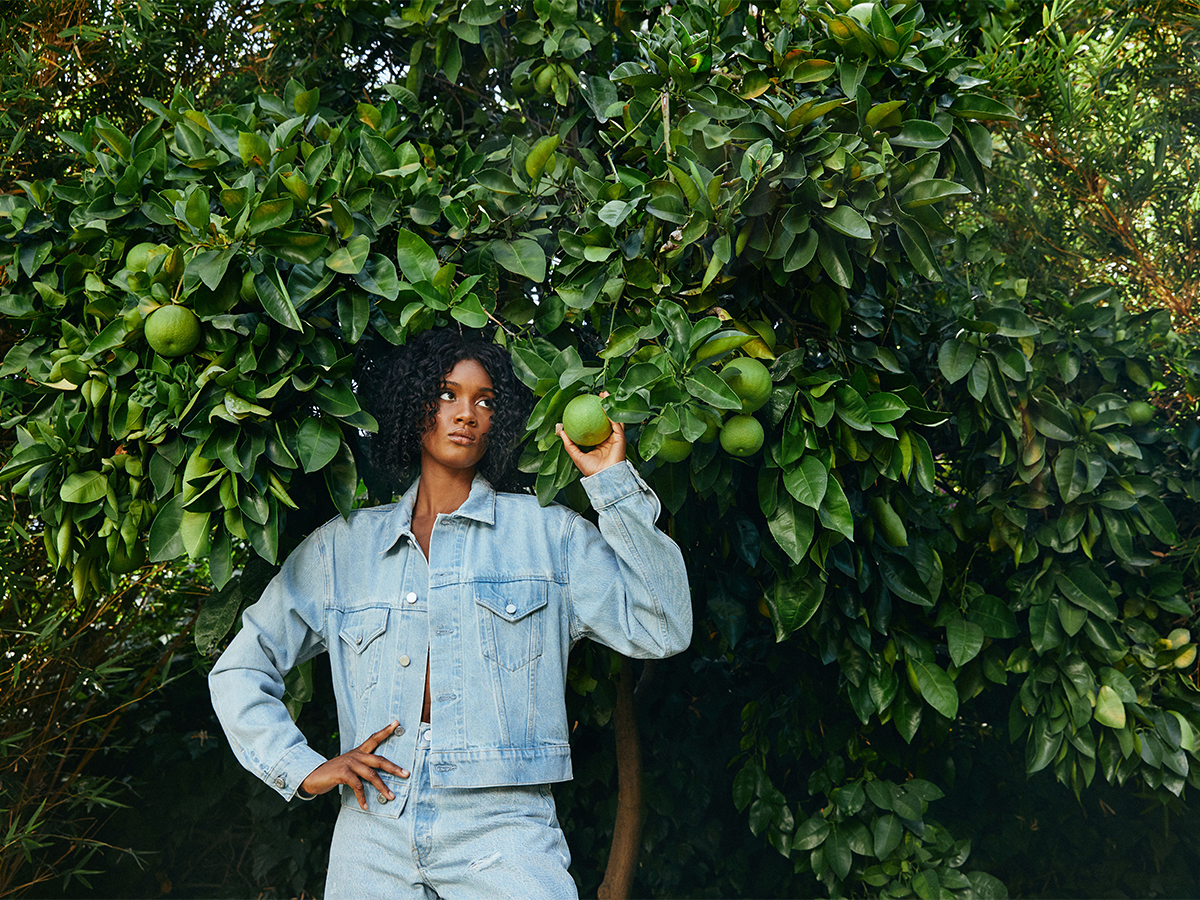
A while back, I began working on a story about how our shopping habits contribute to our carbon footprints and how it has become critical for consumers to adopt smarter shopping habits and prioritize purchasing sustainable brands. Even now, there is still a large misconception around sustainability, specifically with denim. The most controversial thing about denim is not the fact that low-rise jeans are becoming a thing again (surprisingly) but that denim production is one of the biggest contributors to the fashion industry's carbon footprint and overall environmental impact. Considering how a pair of jeans is produced might never cross the mind of the average consumer, but it should.
With that in mind, we reached out to six sustainable denim brands leading the charge in changing the way denim is produced. But first, here are some facts about how denim production impacts the environment.
Some facts about denim production:
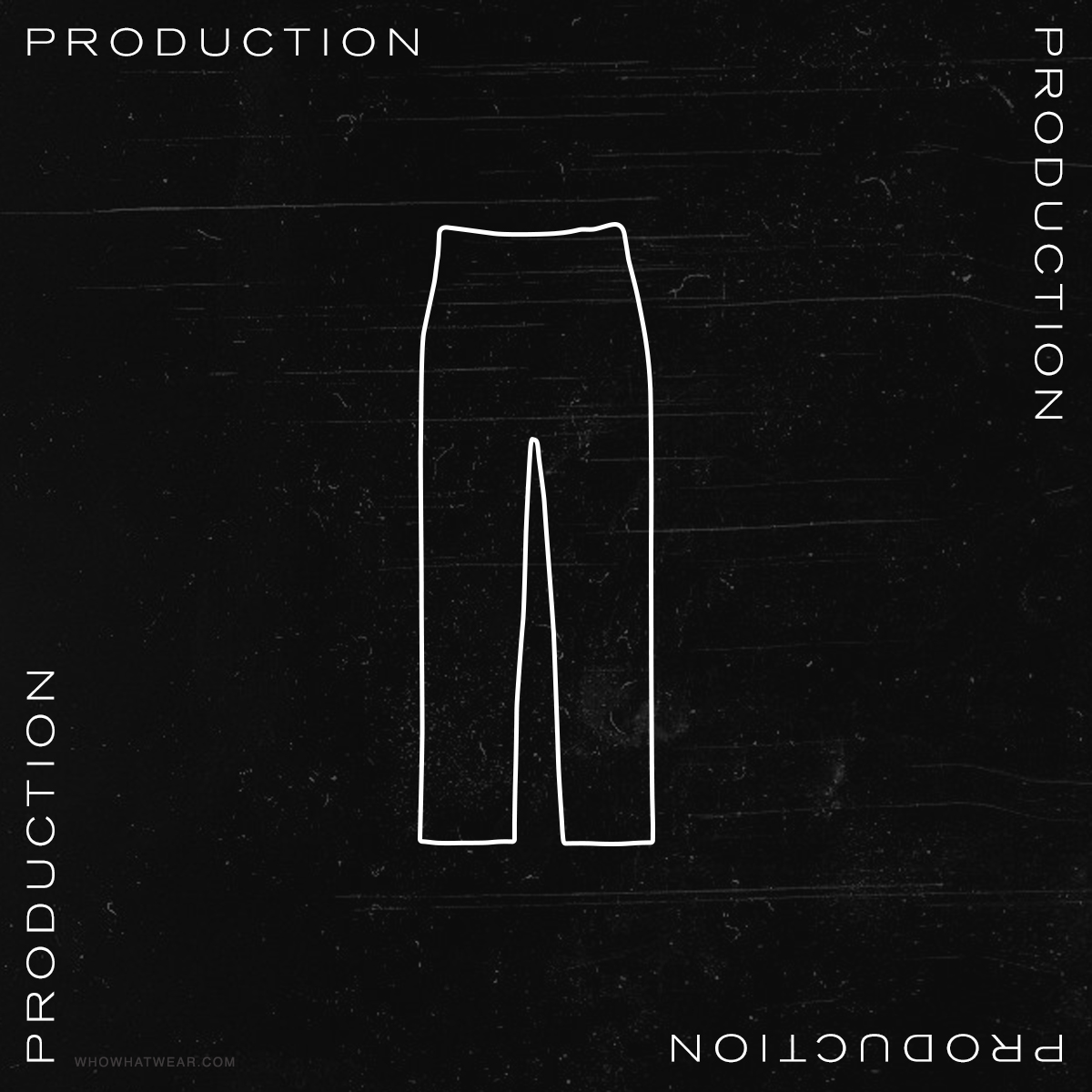
Typically, large amounts of nonrenewable resources are extracted to produce fabric of any kind. In fact, making two pounds of fabric generates an average of 50 pounds of greenhouse gases. But carbon created from the overproduction of clothing isn't the only way the fashion industry is impacting the environment. Denim itself is a large culprit in this, as a typical pair of jeans uses the same amount of water that one person drinks in 13 years—approximately 8000 liters, or 2114 gallons, of water—according to E.L.V. Denim's founder. Not only does the traditional denim production process use copious amounts of water, but the dyeing and treatment of denim are also problematic. Currently, it is estimated that 20% of industrial water pollution globally comes from textile production.
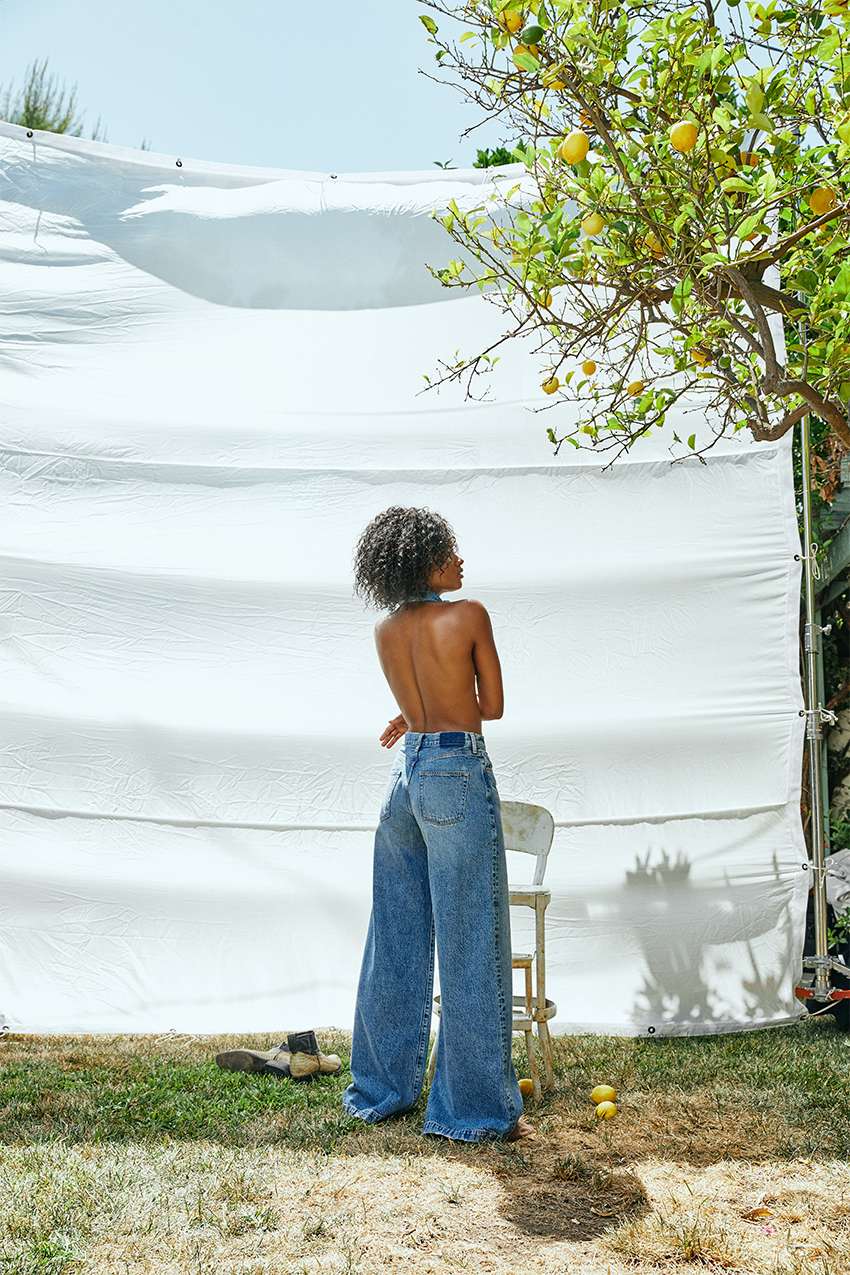
But it's not just the amount of water and nonrenewable resources that make textile production so wasteful. On average, $100 billion is lost annually due to deadstock fabrics (fabric leftover in the production process) and nonrecyclable materials. While more companies have recently been using these deadstock fabrics to create face masks for the COVID-19 crisis, this is only a partial solution to the larger problem and does not acknowledge the toll of producing a pair of jeans. Although it is widely acknowledged that many fast-fashion companies notoriously violate workers' rights, underpay labor, and exacerbate communities' financial autonomy by using toxins that impact their health and water supply long-term, consumers' shopping habits are slow to change, thus perpetuating the cycle.
So the question is, How do we break this cycle and begin to repair the damage done? Ahead, you'll find six sustainable denim brands that are doing just that. Through their production processes and labor practices, these brands are leading the way to change denim's toll on the environment and humans for the better.
DL1961, Warp + Weft

About: In many ways, the sister denim brands DL1961 and Warp + Weft have everything on lock. Not only do the brands champion sustainability, but they're also female owned, size-inclusive, and affordable—need we say more? Ahead, we spoke with CEO Sarah Ahmed about how both of these denim brands have woven in sustainable practices since their inception.
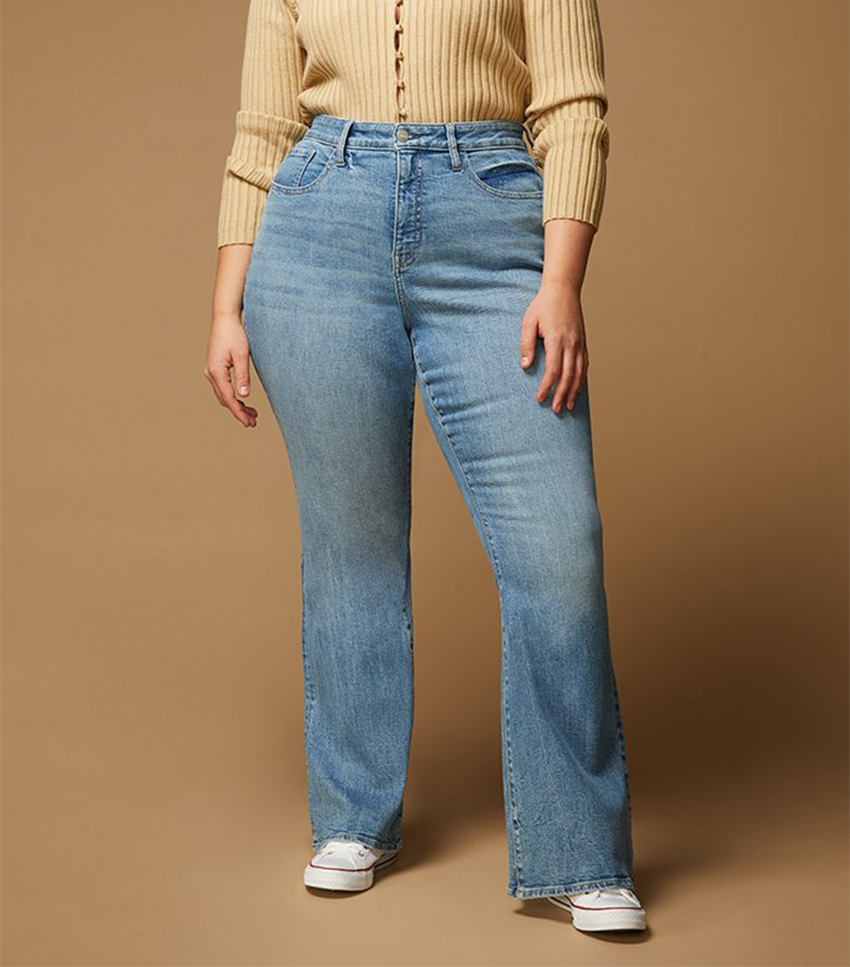
What's one fact about sustainability that you think surprises most consumers?
I think the actual environmental cost (water and energy usage, carbon emissions, decomposition rate) of individual products alarms most consumers. As we shifted to a more transient, almost "throwaway" retail structure fueled by a compulsive need to stay relevant on social media, consumers and brands were more focused on newness than impact.
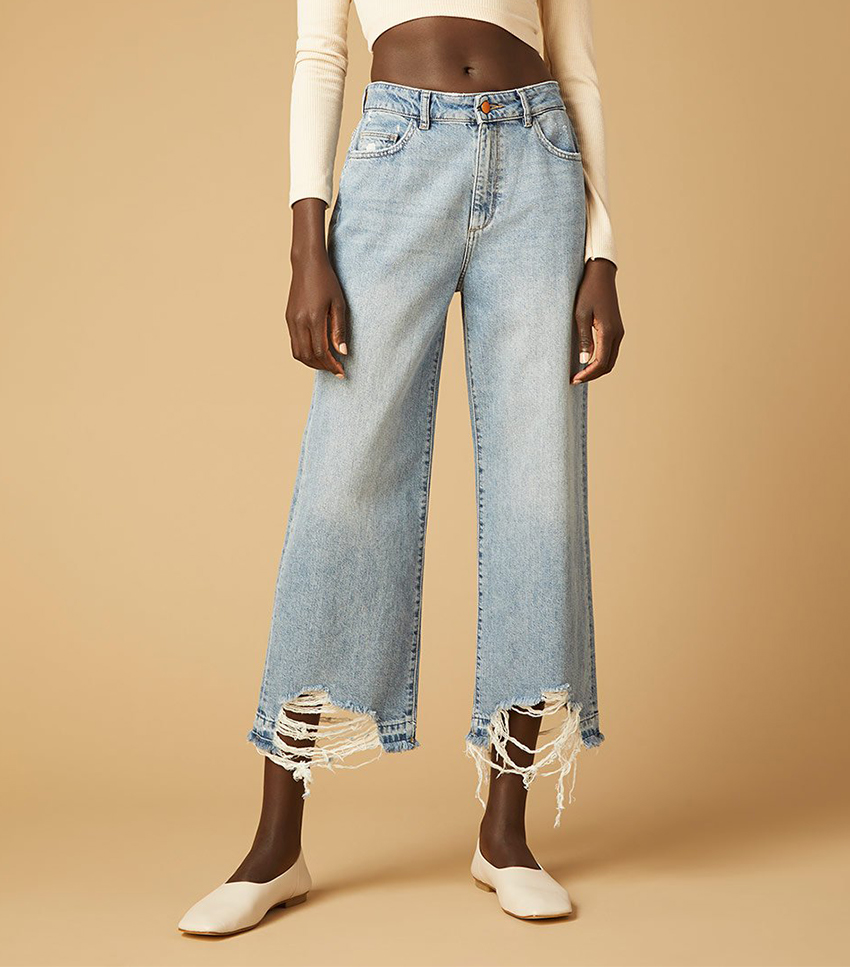
Why is sustainable denim so important?
Denim has been a staple in most people's wardrobes for decades. However, the manufacturing of this material ranks worst on the sustainability scale. It became clear that something had to change in the industry, and the need for more essential affordable clothing manufactured responsibly was imminent. Our history as large-scale denim manufacturers put us in a unique position to not only implement the latest technologies to minimize the environmental impact of denim production but also gave us insights in terms of what different market segments wanted from their denim brand. So DL1961 and Warp + Weft were born, both serving two very different market segments but unified in their mission to create sustainably made denim.
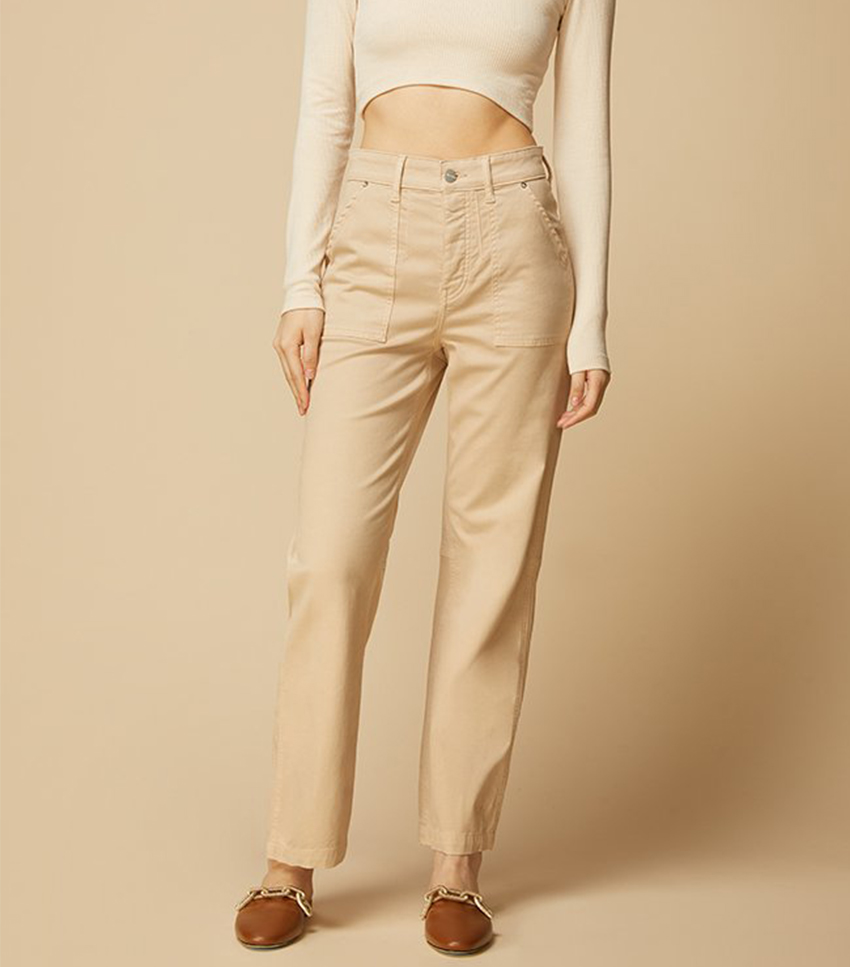
How are Warp + Weft and DL1961 applying sustainable practices to production?
All our denim manufacturing for Warp + Weft and DL1961—plus numerous others we manufacture for—is done in our family-owned, sustainable factory. From solar power and water recycling to using the latest water-saving yarns and laser and ozone finishing technologies, all the denim from our facilities, whether it be for our own U.S. brands or global ones we partner with, is a testament to reimagining denim production. The result? Jeans that are high performance, ultracomfortable, and require less than 10 gallons of water to make (versus the traditional 1500). Plus, all of the water that we do use is purified and recycled on-site.

How do you think our relationship with denim will evolve post-COVID-19? How will the pandemic impact supply chains to come, and as a sustainable brand, what do you hope we can take away from this time?
It's heartbreaking to see businesses suffer from the disruption in the supply chain during this time. But I truly feel there were too many brands created by influencers and "designers" leveraging their Instagram audiences than true fashion executives and talent who not only understood the process and impact but also had a point of view that wasn't derivative. Now, moving forward, as this bubble of sorts has burst, more existing brands who survive will be thinking about what they create in future seasons, and more questions will be asked before someone decides to launch a brand of their own. Launching a brand that has a solid core, principles, and values is much harder than one based on fleeting trends. However, it's one that will be able to weather a crisis like COVID-19.
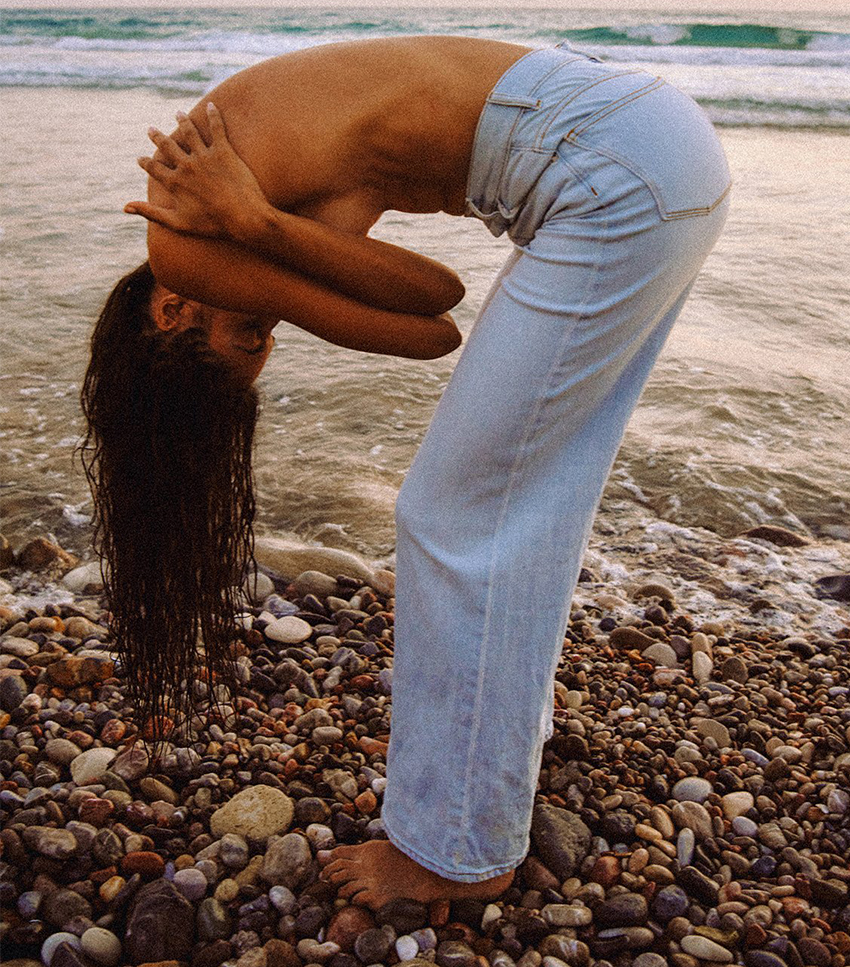
What's one denim trend you're excited about or one collection your team is excited about?
Our team is and has always been excited to create denim that has something unique to offer the customers, whether it is inclusive, affordable, and sustainable essentials at Warp + Weft or a slew of technologically advanced fabrics and premium fits at DL1961. Every season, the focus across both companies is, How do we make this fabric more functional, more sustainable? How do we fine-tune our fits, what does our customer want to see from us, and how can we surprise them?
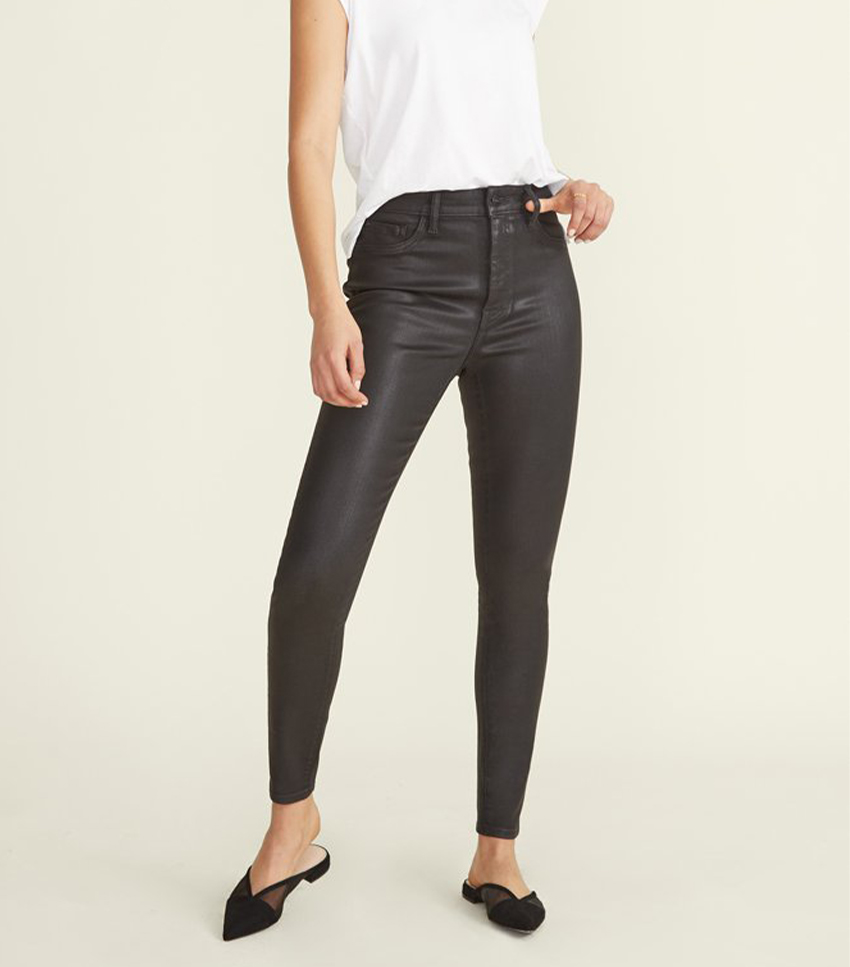
At both DL1961 and Warp + Weft, we are downsizing our collections to focus on a more premium experience for our customers and not inundate them with a choice. With so much uncertainty, we hope they continue to trust us to create responsibly made denim that they feel proud to wear every day.
E.L.V. Denim
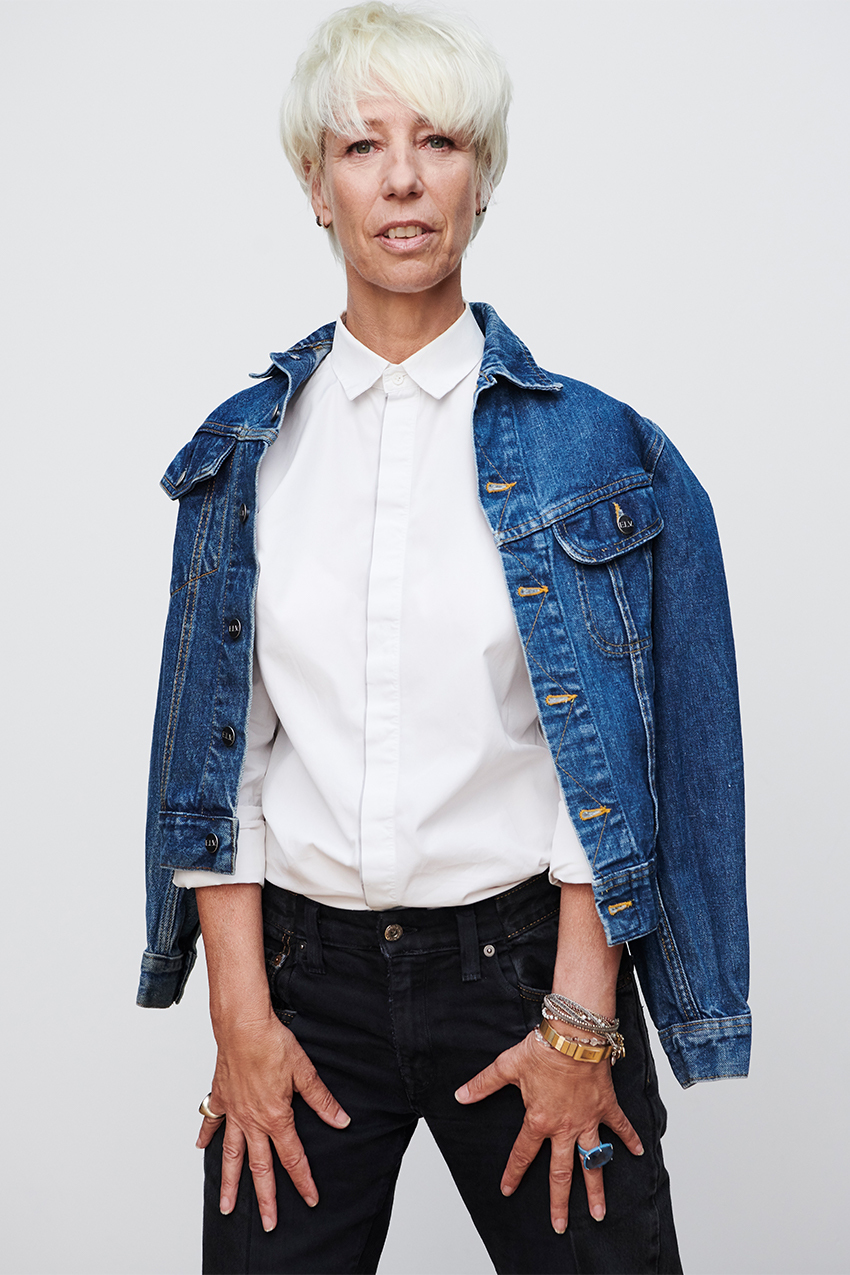
About: Operating from a no-waste model, this London-based sustainable denim brand uses discarded, unwanted deadstock denim and denim destined for landfills and gives it a second life through its collections. Ahead, we spoke with Anna Foster, the brand's founder and creative director, about how we can change denim's impact by changing how we produce denim itself.
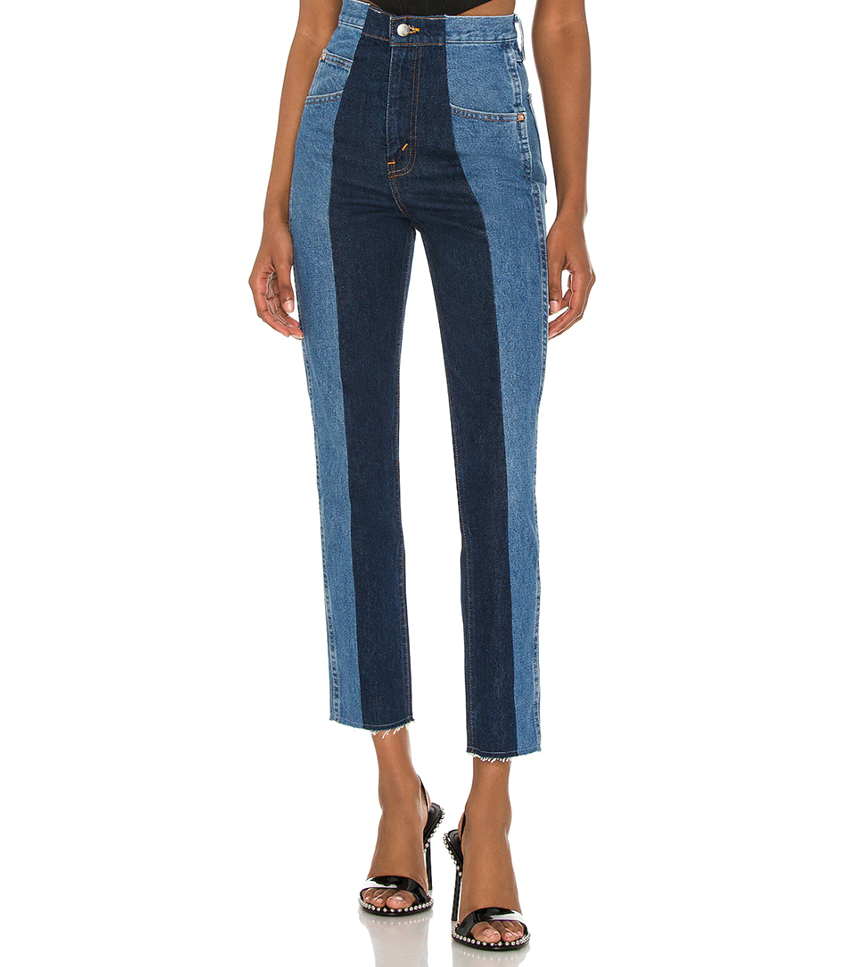
What's one fact about sustainability that you think surprises most consumers?
That one pair of jeans uses the same amount of water that one person drinks in 13 years, approximately 8000 liters of water.
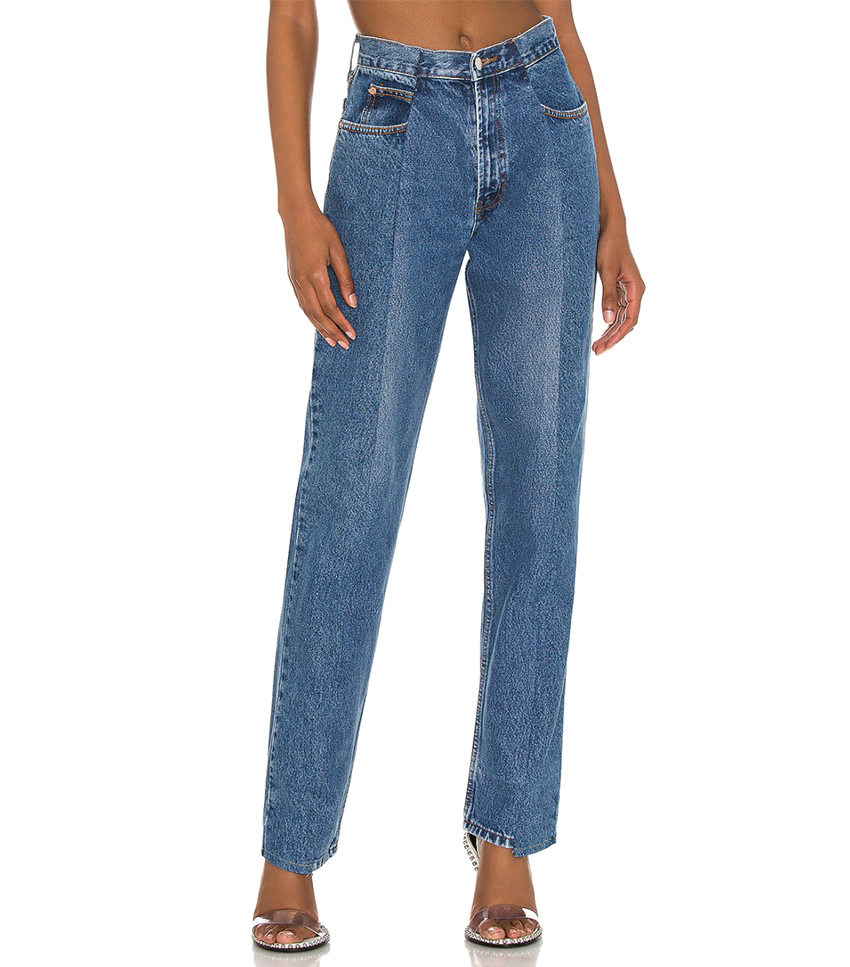
Why is sustainable denim so important?
Brand-new denim not only uses a huge amount of water, but it also contaminates it. This contaminated water goes back into the water supply and has extremely damaging effects on the environment. This is why we need to look into alternative ways of producing jeans. The future of denim manufacturing relies on the supply chain and manufacturing processes to be conscious of the past wrongs and move forward in a way that reflects on everything that we have learned.
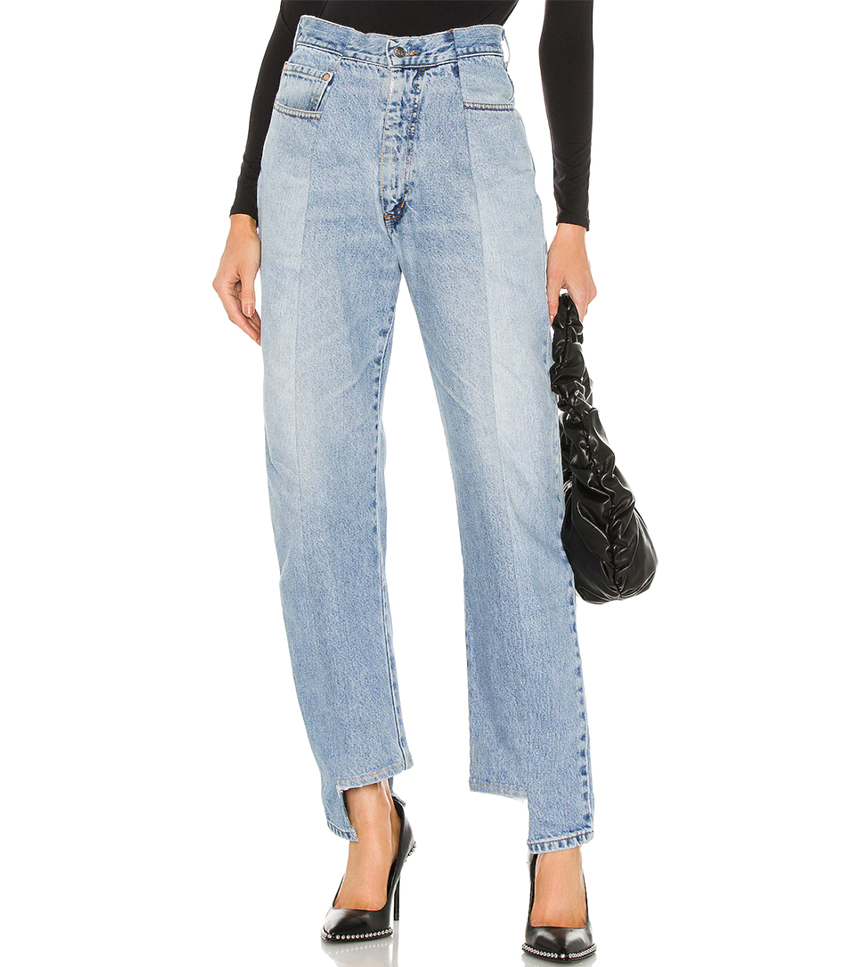
How is E.L.V. applying sustainable practices to its production?
At E.L.V. Denim, we only use vintage denim that would otherwise be destined for landfills. This means the materials used to make a pair of our jeans ensure zero waste and have zero impact on the environment. Not only that, but we also use local factories in East London, five miles away from our studio, keeping our carbon footprint to a minimum and supporting local communities. For me, it has been paramount from the beginning to support the heritage of the East London textile industry.
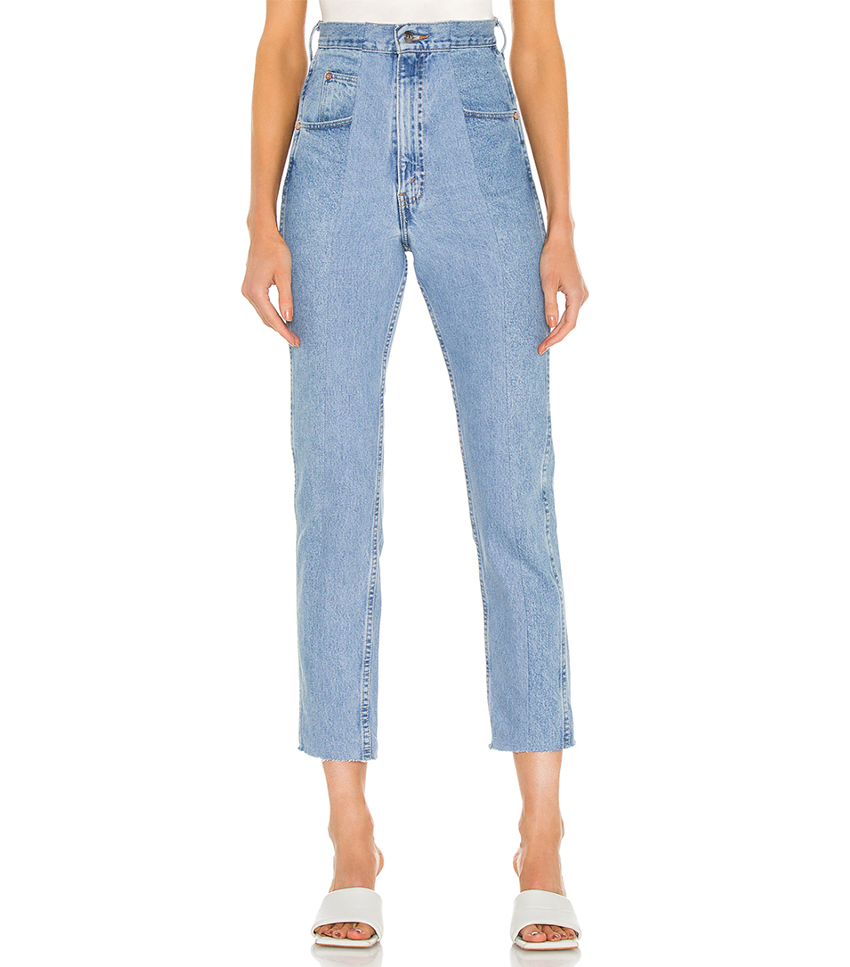
How do you think our relationship with denim will evolve post-COVID-19? How will the pandemic impact supply chains to come, and as a sustainable brand, what do you hope we can take away from this time?
Post-pandemic, I think we will have an entirely different relationship with clothes in general. We need to take time to appreciate what we purchase and find the story behind it. I believe that consumers will ask questions of their denim brand and expect honest answers. I am very transparent with my processes, and I wear my heart on my sleeve. I create and love every single pair of jeans that are made. Each pair is unique like its future owner.
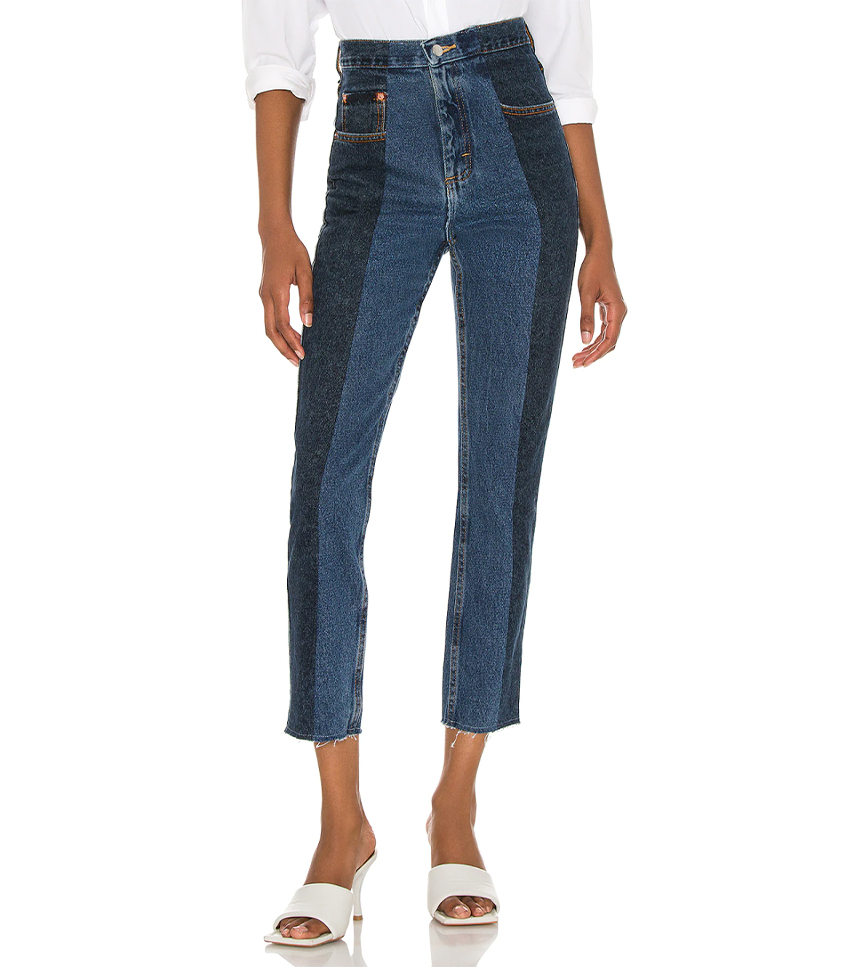
What's one denim trend you're excited about or one collection your team is excited about?
I am really excited about my upcoming collaboration with Swarovski. They have a collection of upcycled crystals with limited quantities, which I have been invited to design with. I have loved creating a capsule collection (four jackets and one style of jeans) that will have a small run of five per style, all made by hand. Creating such a small collection that can never be repeated using post-consumer waste… Well, for me, that's the future of fashion.
Outland Denim
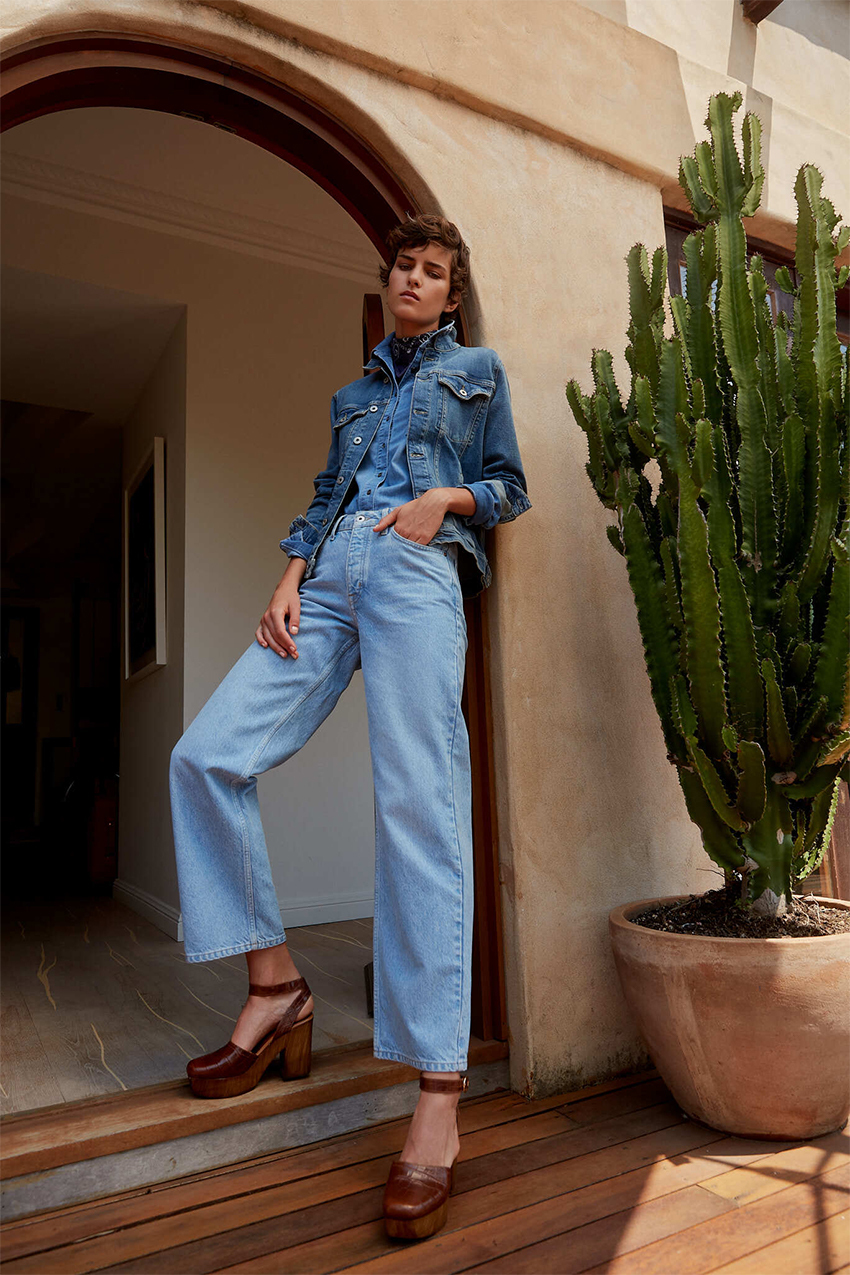
About: Sustainability is at the forefront of Outland Denim's mission, but the brand's founding was inspired by helping women who are at risk of or have experienced sex trafficking. The brand works to empower women and upholds a supply chain that does not exploit the environment or its workers. Ahead, we spoke with Outland's CEO, James Bartle, about why making sustainable denim incorporates every part of the production process.
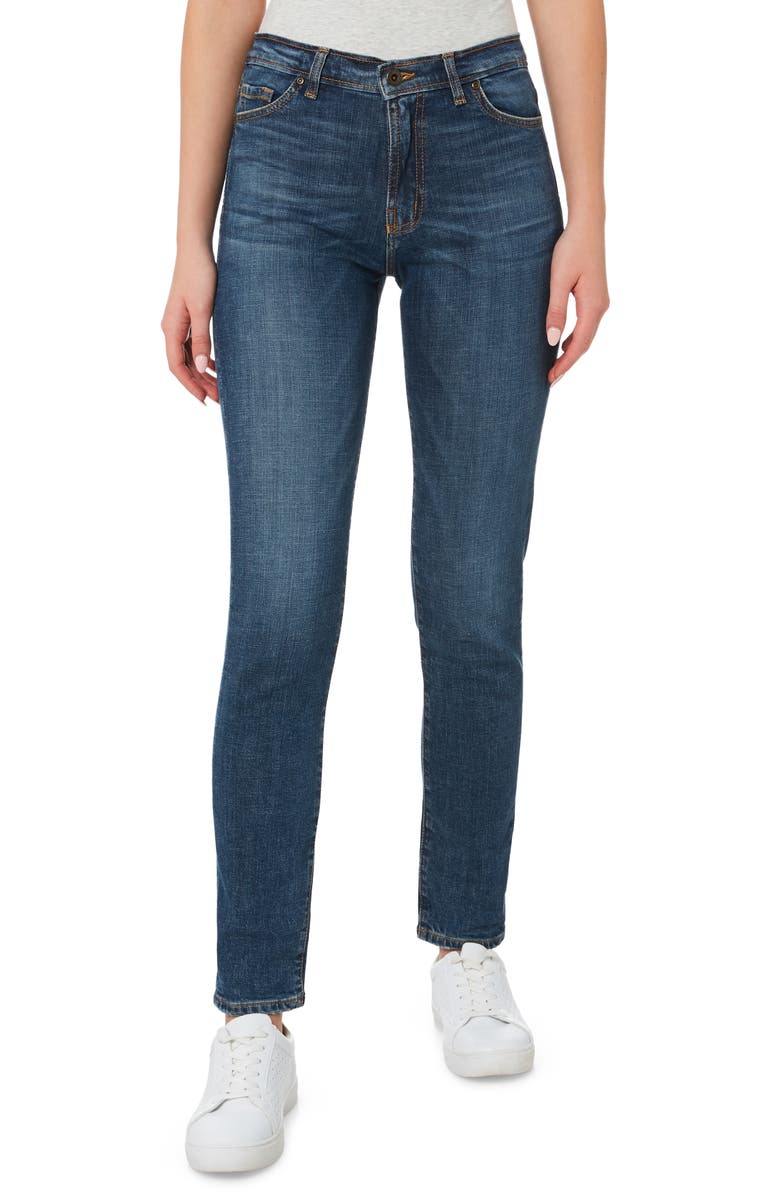
What's one fact about sustainability that you think surprises most consumers?
It's really exciting to hear more consumers, brands, and manufacturers talking about how we can mitigate harm to the environment. However, I think that other areas of sustainability are often overshadowed by environmental sustainability. There is still a lot of work to be done to protect the rights of the people making clothes and in ensuring they experience a respectful, safe, and fulfilling workplace in which they are paid fairly. I think that people are often surprised to learn that an environmentally sustainable solution may actually go on to have a negative social effect and vice versa. I see true sustainability as social, environmental, and economical. It needs to protect people, protect the planet, and also be financially viable to continue. Not one fashion brand in the world, including us, have all the answers. But we are committed to finding the solutions.
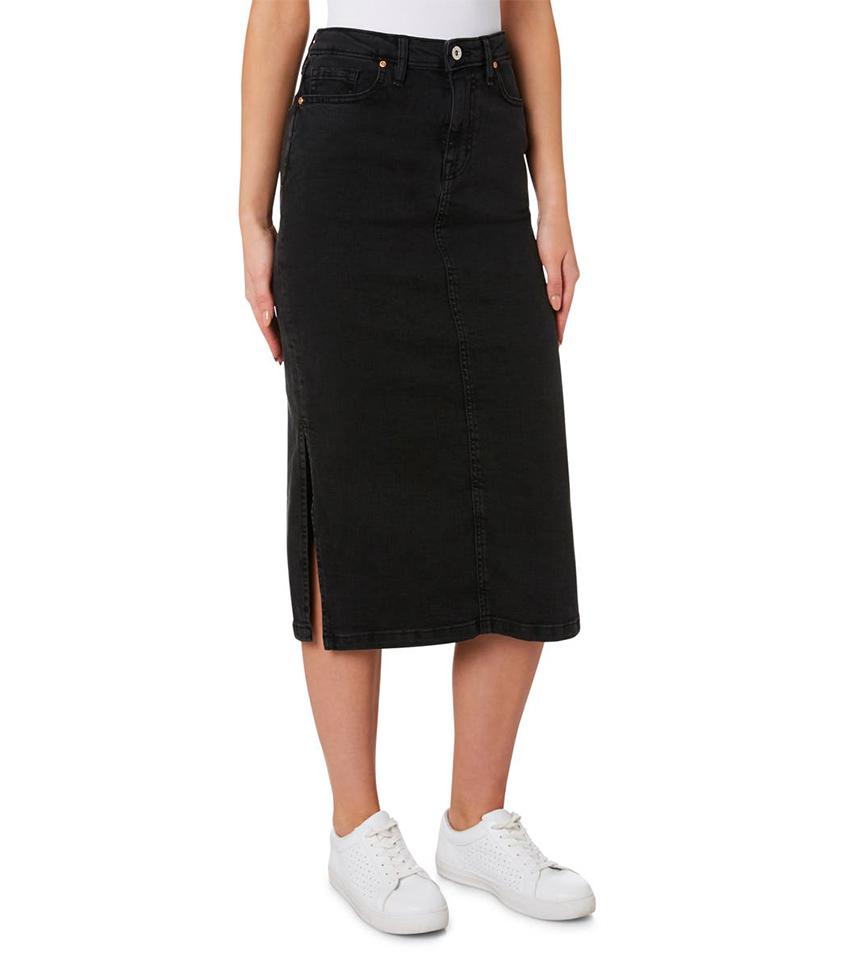
Why is sustainable denim so important?
In developing Outland Denim, we quickly learned that not only is denim one of the most challenging sectors of the fashion industry to break into, but it's also one of the dirtiest environmentally. So while we set out to create something 100% socially sustainable, we now see the opportunity and our responsibility to help clean up the denim industry, too. The washing and finishing process of making a pair of jeans is conventionally extremely bad for the environment in terms of water, energy, and chemical usage. Opening our very own wash-and-finishing facility last year meant that we now have greater control over our environmental footprint and can now offer even more employment opportunities.
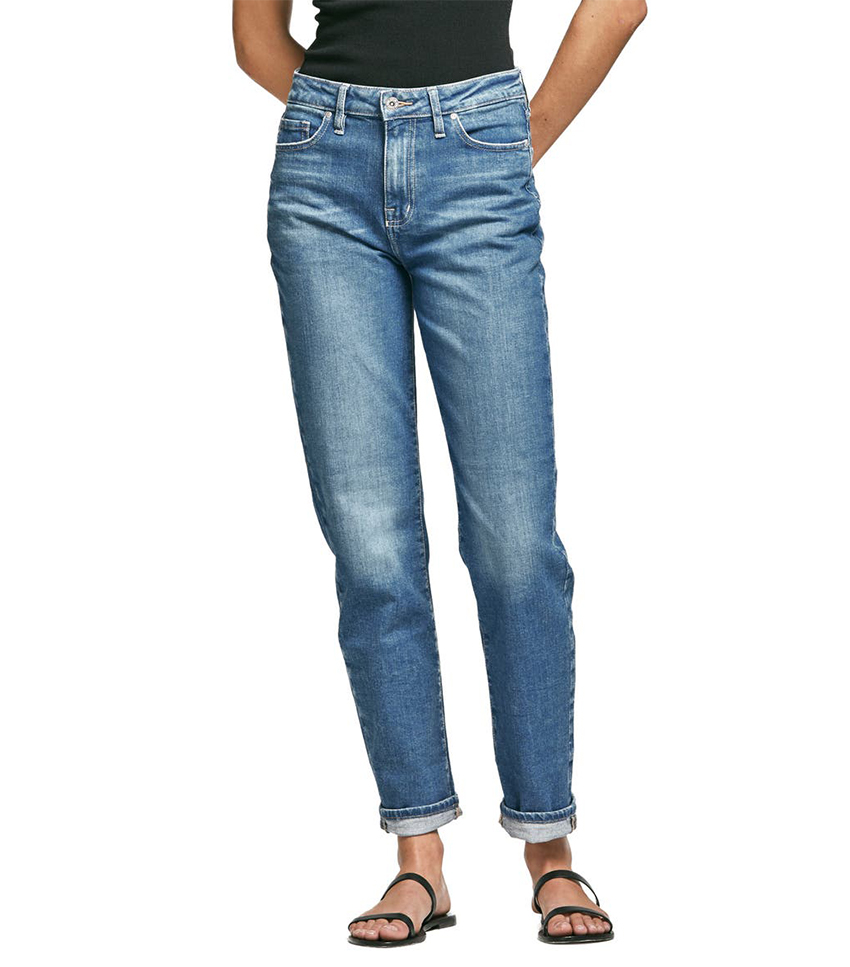
How is Outland applying sustainable practices to its production?
Sustainability is in our foundation as a brand. Outland Denim's story began about 10 years ago when my wife and I saw the movie Taken. While a fictional film, it was an introduction to an industry that exists today, in which people are stolen and sold for profit. As we began to research, we soon discovered the complexity of the problem and its prevalence all over the world. I had the opportunity to travel through Southeast Asia, where I saw what the problem looked like on the ground. We discovered that, in addition to sex trafficking, trafficking for labor was also a common threat within vulnerable communities. We learned that once a woman has been reintegrated into the community, a sustainable career path is vital for securing her future. Outland Denim was founded to offer that sustainable career path.
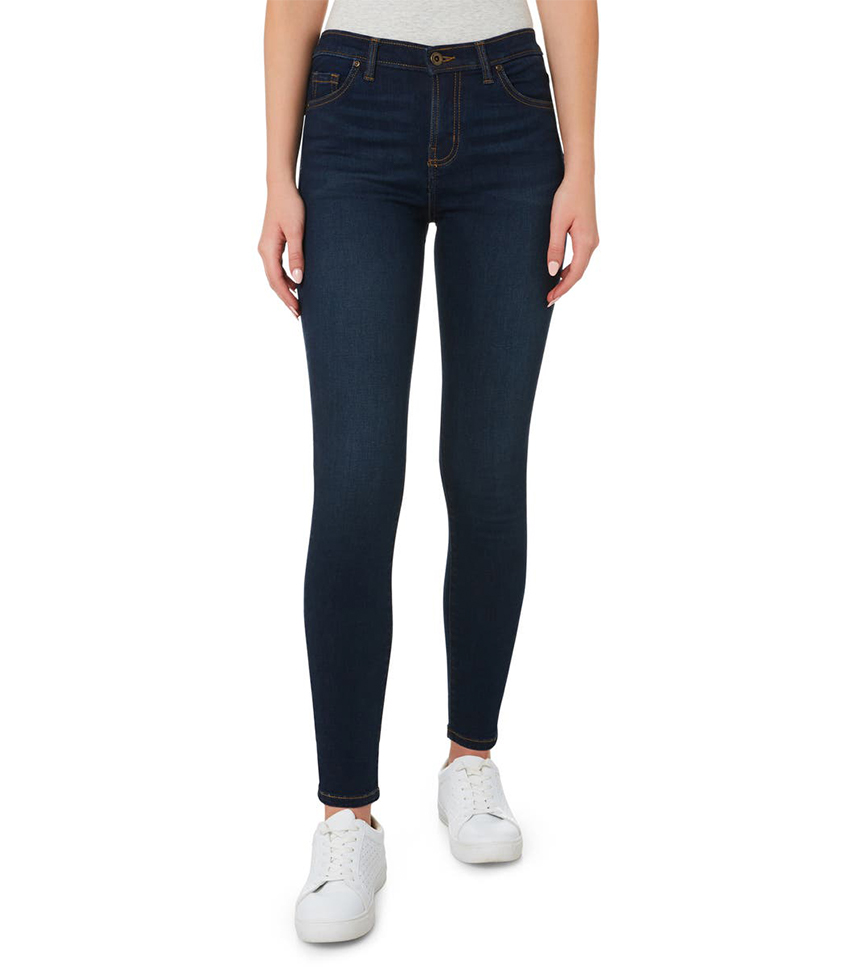
Today, we welcome employees from varying backgrounds of vulnerability and social injustice. Each of our employees receives living wages alongside other opportunities to provide security and nurture career growth. Our jeans are made with organic cotton, zero harmful chemicals, and responsible, safe dyes. We source the finest raw materials from suppliers who share in our mission and excel in social and environmental responsibility. In our wash facility, our garments are finished using laser, removing the need for water-intensive washing and heavy chemical use; ozone, which uses up to 65% less water, 20% less energy, and 80% less chemical than conventional methods; and e-flow, which uses up to 95% less water, 40% less energy, and 90% less chemical than conventional methods.
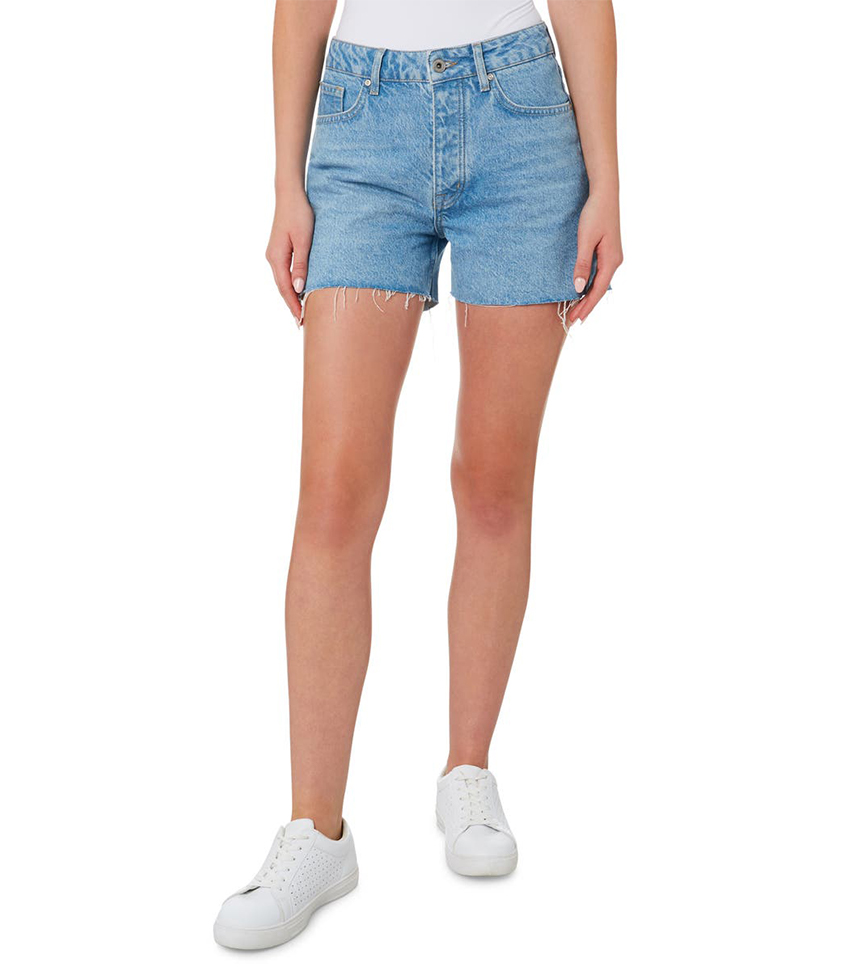
How do you think our relationship with denim will evolve post-COVID-19? How will the pandemic impact supply chains to come, and as a sustainable brand, what do you hope we can take away from this time?
Over the past year, we pivoted our business model to offer the opportunity for other brands to produce with our facilities. By doing so, other brands can produce using the socially, environmentally, and economically sustainable facilities that we have established and there is potential to both stretch our impact and grow our business. From our highly successful equity crowdfunding initiative, we welcome over 600 new investors to the Outland Denim team, over 70% of them female, which really made a distinct mark in showing just how important sustainability is to the mass consumer.
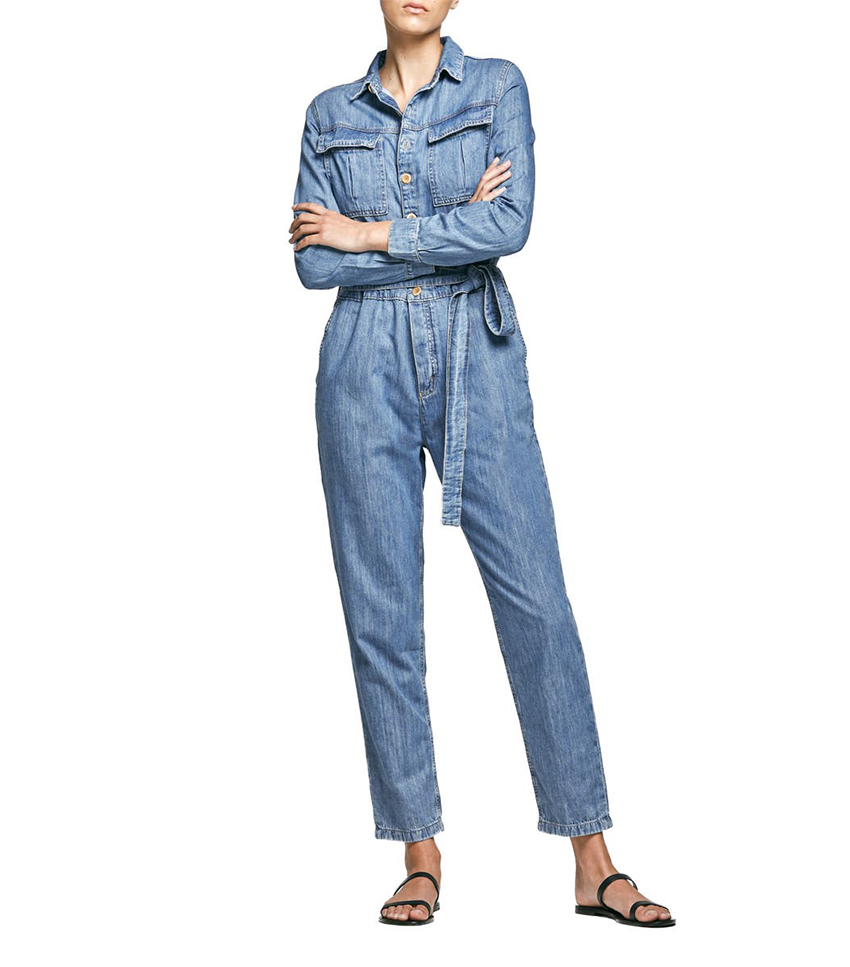
What's one denim trend you're excited about or one collection your team is excited about?
It was really exciting to see our latest women's ready-to-wear reset capsule come to life. It’s our first venture in ready-to-wear, but keeps with the brand’s core values and sustainable manufacturing standards.
We’ve really noticed an uptick on loose denim and our rigid-denim jean, Amy in Former, is the most sustainable vintage denim wash on the market today. Conventionally, vintage-wash denim jeans require intensive washing using processes that have devastating effects on the environment, but by using innovative water- and energy-saving technology, zero harmful chemicals, considered natural fibers, all-vegan materials, and by designing for longevity, the Amy Former jean was created with less environmental impact.
Ética
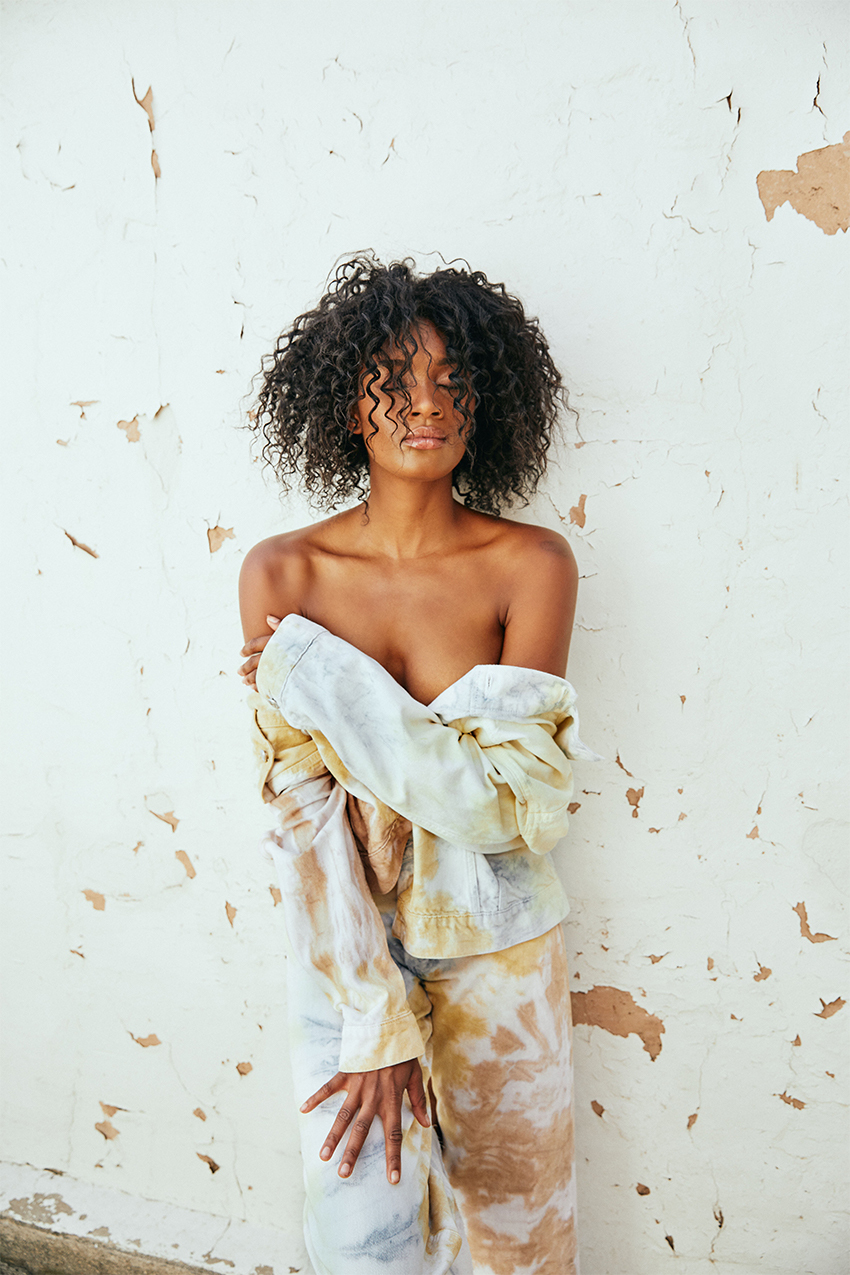
About: Not only does Los Angeles–based denim brand Ética champion sourcing ethical fabrics and eco-friendly packaging, but the brand also regularly contributes to 1% for the Planet and One Tree Planted to help combat climate change. Ahead, we spoke with Sage Matthews, the brand's design and creative director, about how it's up to denim brands to continue to champion sustainability one step at a time.
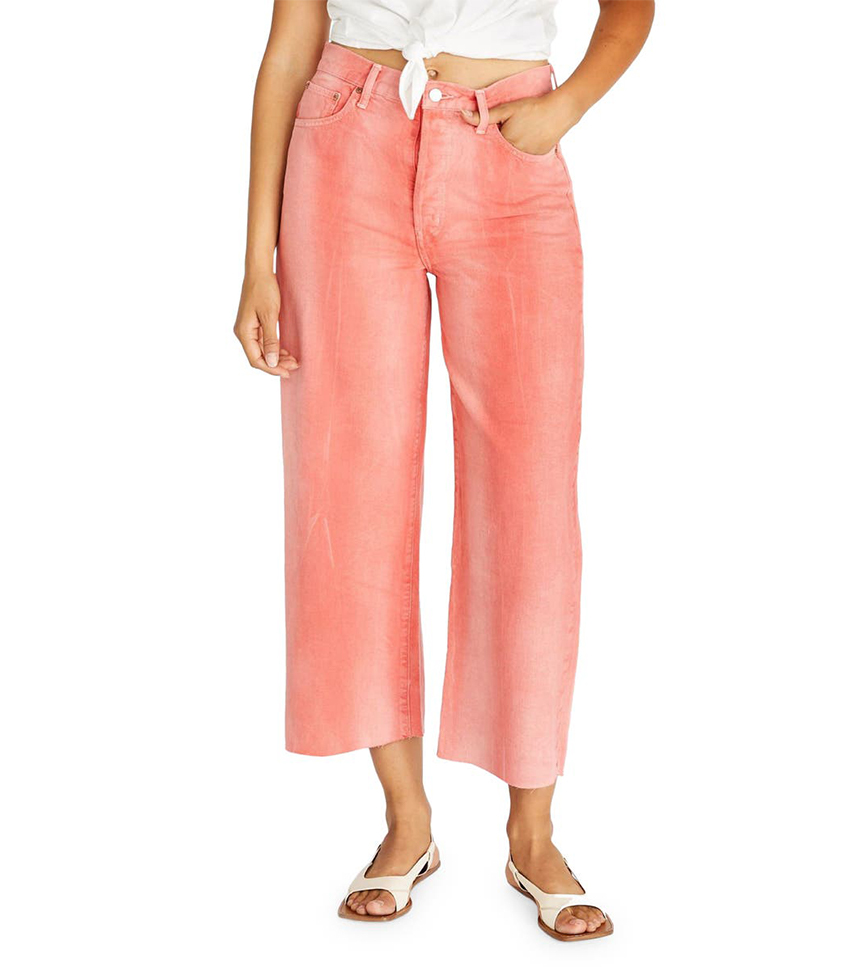
What's one fact about sustainability that you think surprises most consumers?
I think what surprises most consumers about sustainability is that it can mean so many things across a large spectrum. To some brands, it simply means organic fabric or a transparent supply chain. For us, it means being committed, reducing our impact at every part of the process. There is no "right" way, and we should encourage all brands to make the best choices available to them. If this begins with just fabric, great! It all starts somewhere and inevitably grows from there. The industry has an obligation to educate the consumer about why things can be done better so consumers can choose the brands that are doing better. At Ética, we are passionate about pushing ourselves to do more, and though it doesn't always happen as quickly as we would like, we appreciate the progress we've made. After all, we are part of a huge industry that has not been committed to sustainability for long. We are all in this together, and we are happy to see the industry progressing faster than ever before!
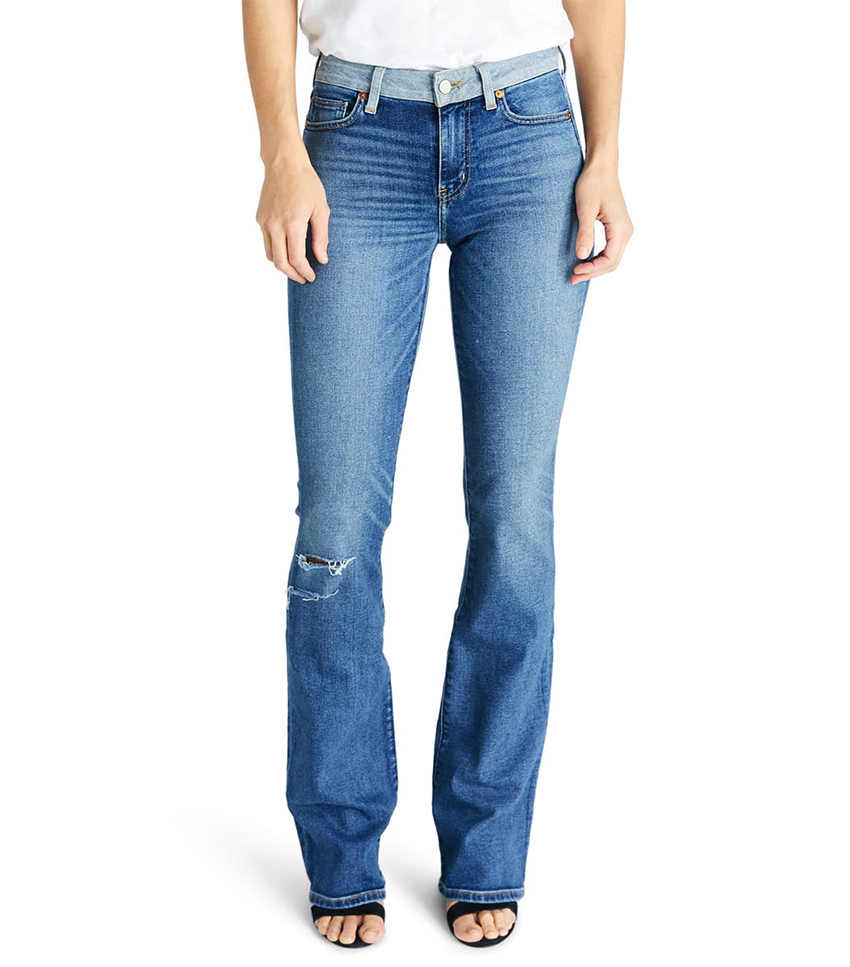
Why is sustainable denim so important?
Sustainable denim is crucial because this sector has historically been one of the biggest contributors to fashion pollution. Denim is unique in that it undergoes a lengthy wash process in addition to the typical steps that other categories do—fiber growth, fabric production, sewing, etc. This second-life process gives us the vintage effects we nostalgically love, but it also requires so much more water, energy, and chemicals that can be damaging to the environment. Solving for all of these processes in denim—from fiber growth to end product—greatly reduces the negative impact fashion has on our environment.
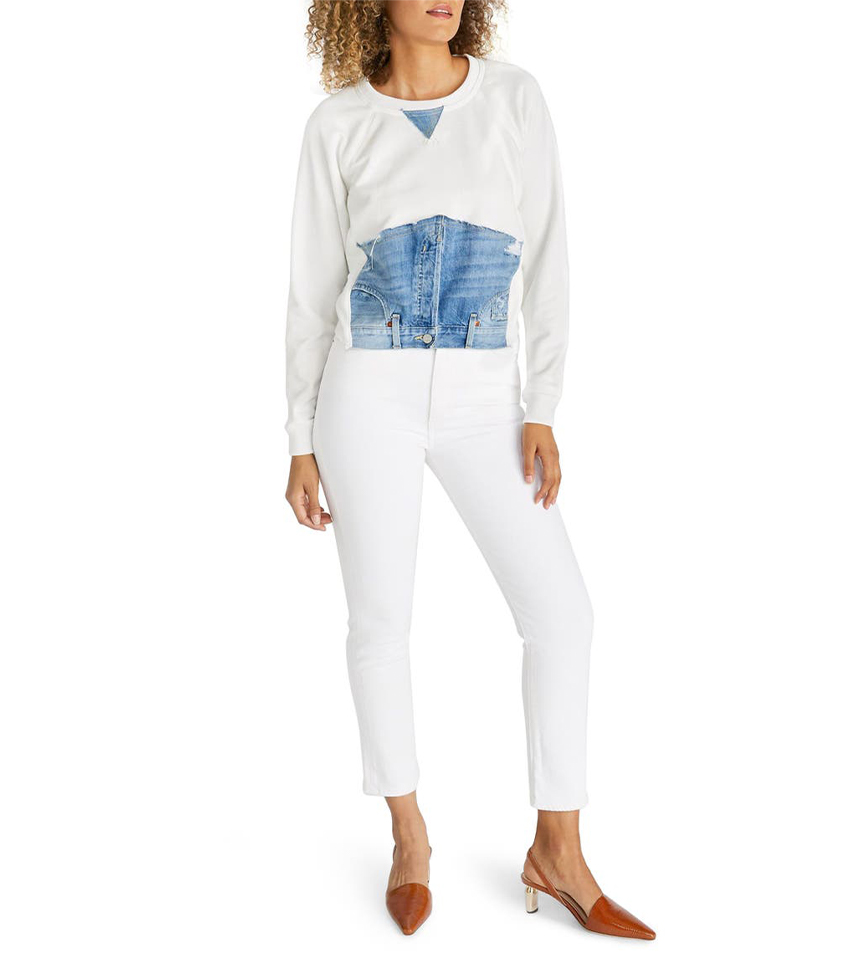
How is Ética applying sustainable practices to its production?
At Ética, we consider every aspect of our production, from sourcing to production to packaging. This begins with carefully considering who we source our fabrics from, based on selective criteria for environmental impact and social responsibility. We are mindful of every part of the process, from the carbon footprint and efficiency of our raw materials to wash processing to the people who make it all happen. It is both challenging and exciting to search for ways to constantly improve. We say, "As we know more, we do better."
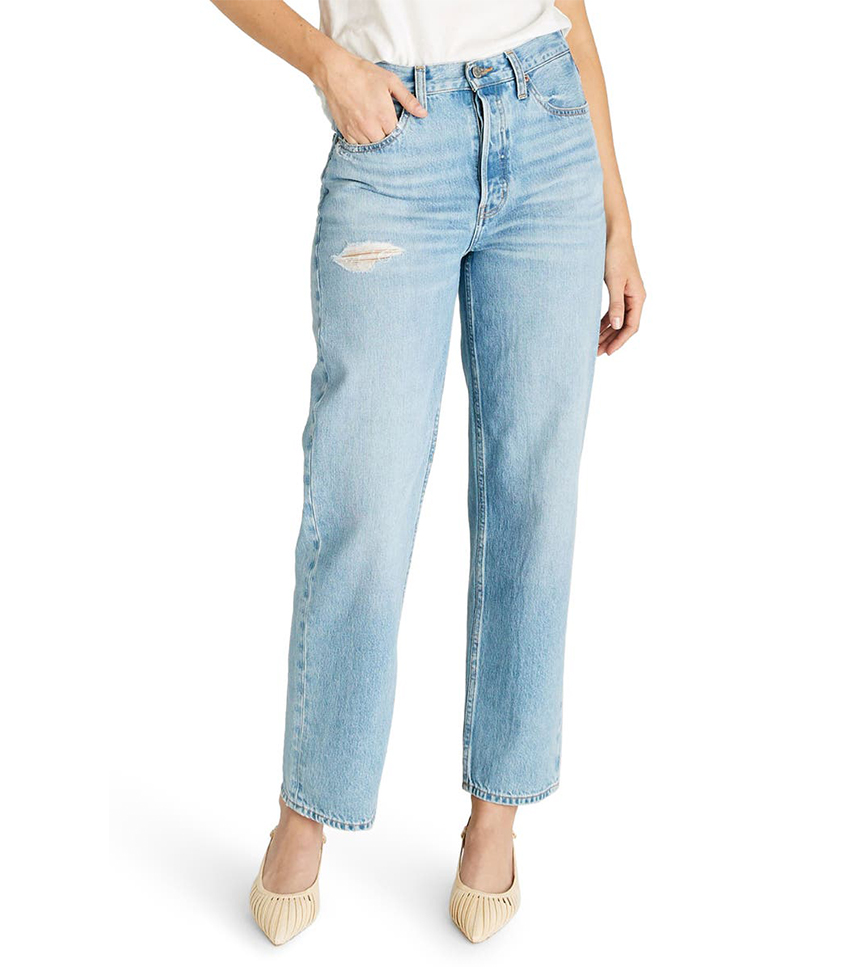
How do you think our relationship with denim will evolve post-COVID-19? How will the pandemic impact supply chains to come, and as a sustainable brand, what do you hope we can take away from this time?
Denim is a forever-loved product, ingrained in both the fabric of the world and the hardworking history of making America. A relationship like that stands the test of time, and I believe we will seek denim as a comfort, something reliable, that has brought us through challenging times before and holds the happy memories of our own weathered histories. The impact on supply chains will be forever changed with the learnings of how interconnected we all are. I truly hope it brings an appreciation for these relationships in the same way we are all connected on this Earth we share and rely on for our health. What one does has an impact on another, no matter how near or far.
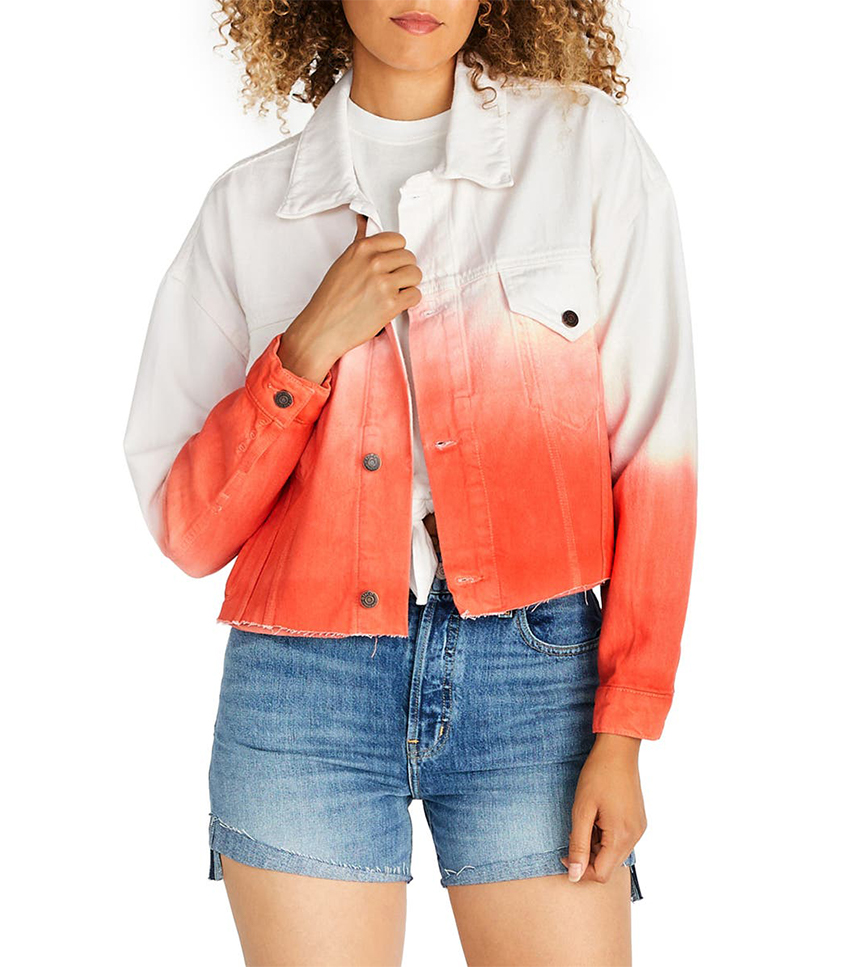
What's one denim trend you're excited about or one collection your team is excited about?
While we always observe fashion trends, I try to ensure our collections stand on the foundation on which denim was built, being well-made and meant to be lived in. That foundation is then layered up with considerations of what is happening in denim, in sustainability, and in the world itself. We are currently working on a collection called Higher Perspective that views the world from above in order to take in the bigger picture of interconnection. The designs and washes began with ideas of flight and high-line views of our world's natural elements. If we join together in that view, we see how small many of our individual concerns are and how related we are to the species at large.
Levi's
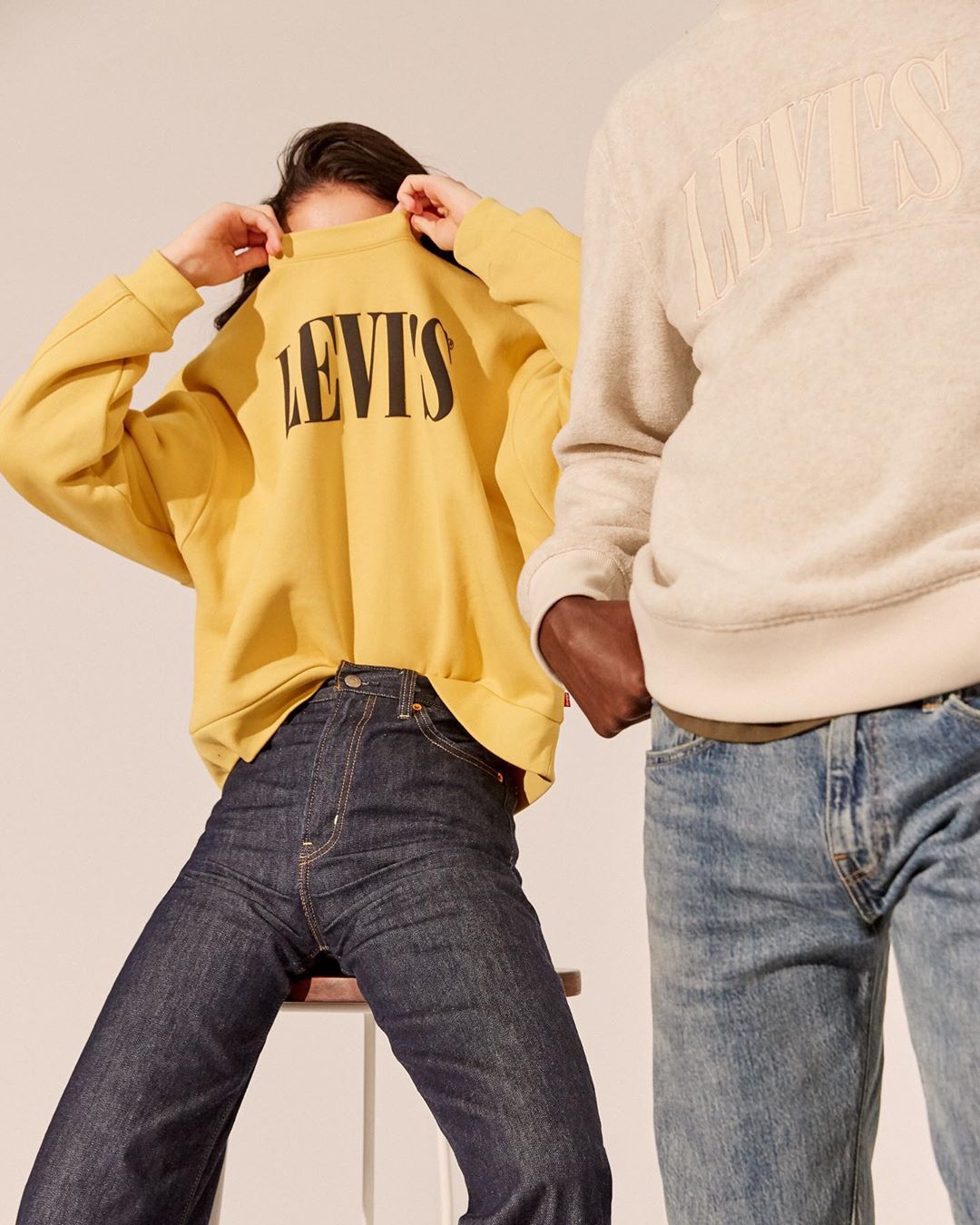
About: Changing the way denim is produced shouldn't only be up to the new brands. Household names should also adopt sustainable practices, and Levi's has been one of those brands to do so. Ahead, we spoke with Liz Lipton-McCombie, the brand's director of global sustainability, about what measures the company has taken to make its iconic denim eco-friendly.
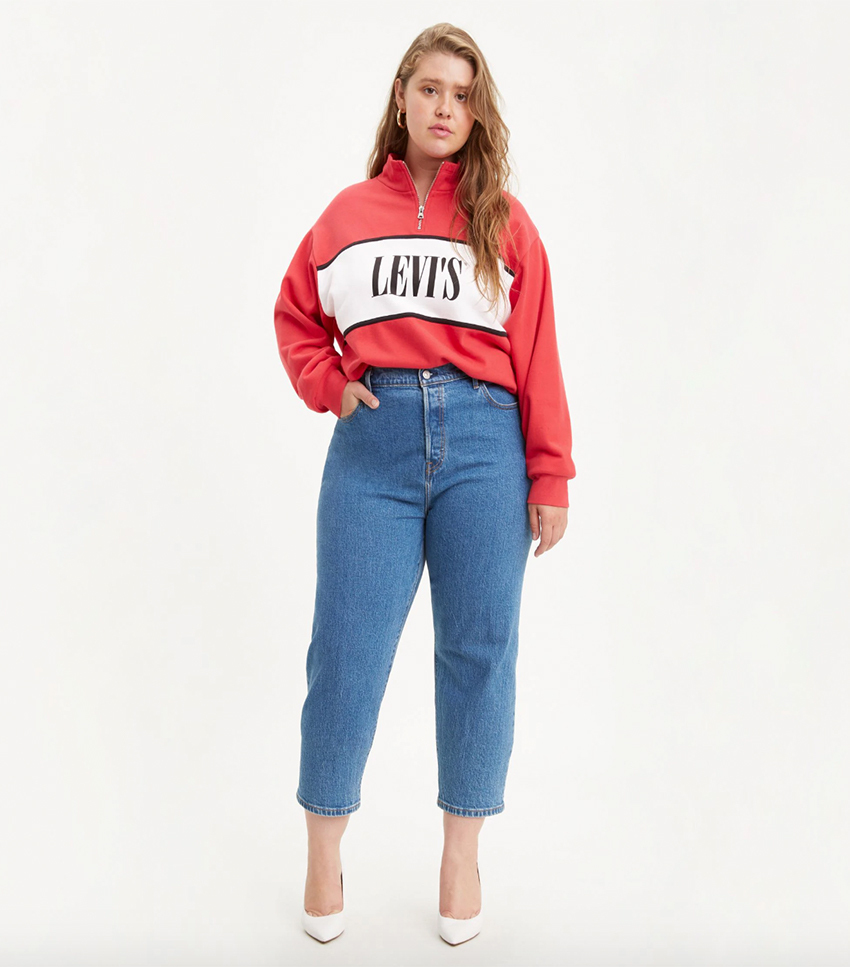
What's one fact about sustainability that you think surprises most consumers?
Many consumers are surprised to find out which stages of a product’s life cycle use the most water and energy. The consumer-care stage (washing and drying) accounts for 23% of the total water used and 40% of the climate impact over the lifetime of a pair of jeans. That's why we say, "Wash less, wash cold, and line-dry.”
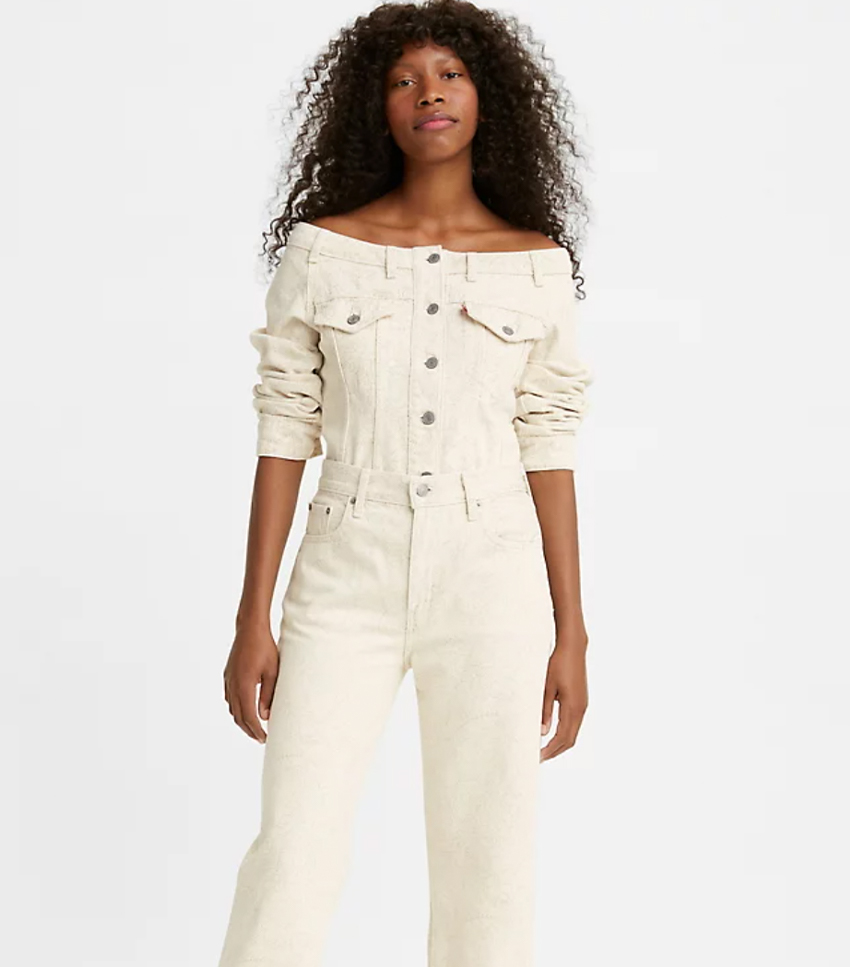
Why is sustainable denim so important?
We, collectively, are at a critical juncture when it comes to the environment and society. It is not enough for companies to make statements or sign pledges. We must have an impact. Denim is ubiquitous in fashion. It can be resource-intensive to grow and labor-intensive to manufacture into apparel. But this kind of volume brings the potential to scale new sustainable practices in agronomy, improve ecosystems, generate economic development, advance manufacturing and chemical management, and create circular products. If we make denim more sustainable, then we push our industry to find solutions to its most pressing issues.
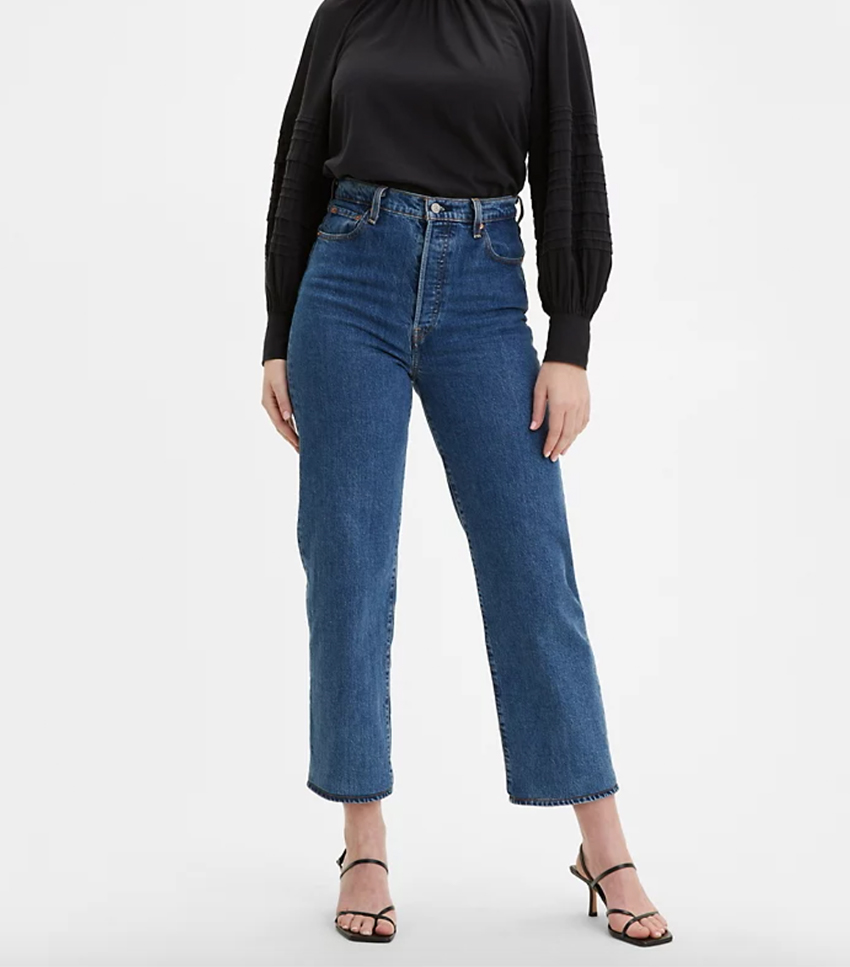
How is Levi's applying sustainable practices to its production?
We focus our sustainable practices to address our four areas of material impact: water, climate, chemicals, and people. In doing so, we've been operating a number of programs for many years and innovating along the way. In addition to our comprehensive code of conduct that we apply to all manufacturing sites, we operate our Worker Well-Being program in 17 countries, reaching 219,000 workers.
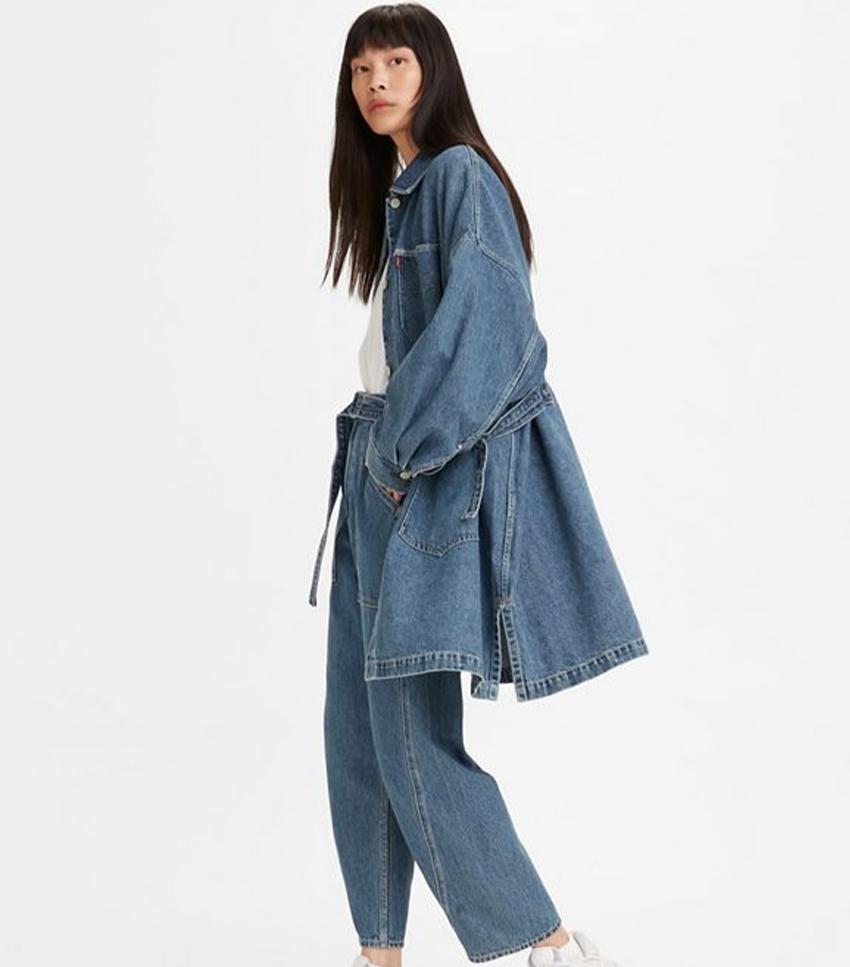
How do you think our relationship with denim will evolve post-COVID-19? How will the pandemic impact supply chains to come, and as a sustainable brand, what do you hope we can take away from this time?
This is hard to know for sure, but given this time where consumption has slowed down and people are taking stock of what they have, I think consumers will make more considered choices post-pandemic. People are likely to look for quality and durable products and the opportunity to keep things that they love for longer, opting to repair rather than buying something new. This mentality goes hand in hand with denim.
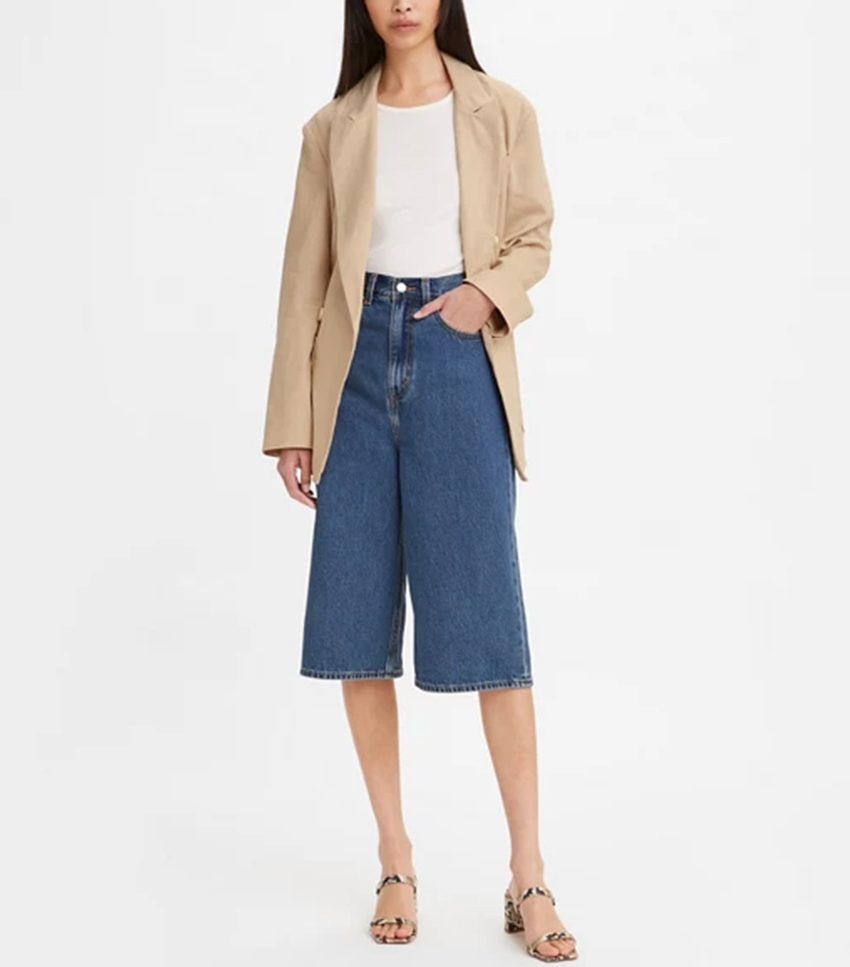
What's one denim trend you're excited about or one collection your team is excited about?
We're really excited about the new Levi’s WellThread collection, our most sustainably designed collection made with less water, fewer chemicals, 100% recyclability, and supporting worker well-being. It was through WellThread that we introduced product made with cottonized hemp—rain-fed hemp fiber that's been treated to look and feel like cotton, which we're now integrating into our other product lines—and all WellThread products are designed to be recycled where the necessary technology is available, even our Two Horse patch and Red Tab. This is one of the ways we can start to show what the industry can and should look like in the future.
Next: The Beginner's Guide to Cutting Your Closet's Carbon Footprint
This post was originally published at an earlier date and has since been updated.

Jasmine Fox-Suliaman is a freelance writer and editor living in New York City. What began as a pastime (blogging on Tumblr) transformed into a lifelong passion for unveiling the connection between fashion and culture on the internet and in real life. Over the last decade, she's melded her extensive edit and social background to various on-staff positions at Who What Wear, MyDomaine, and Byrdie. More recently, she’s become a freelance contributor to other publications including Vogue, Editorialist, and The Cut. Off the clock, you can find her clutching her cell phone as she's constantly scrolling through TikTok and The RealReal, in search of the next cool thing.
-
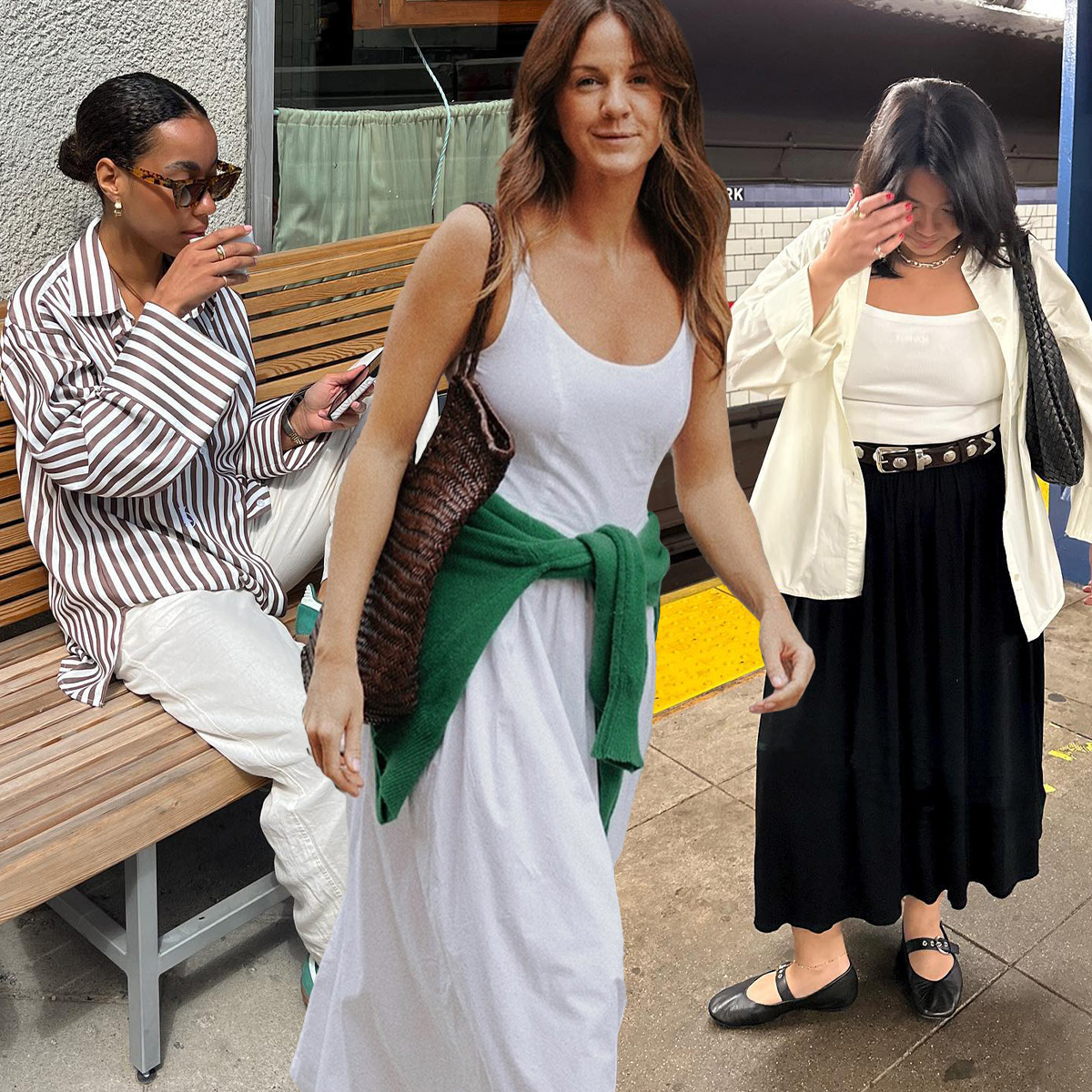 10 Spring Outfit Ideas That Will Make Anyone Look Like a Fashion Person
10 Spring Outfit Ideas That Will Make Anyone Look Like a Fashion PersonBring on the compliments.
By Jennifer Camp Forbes
-
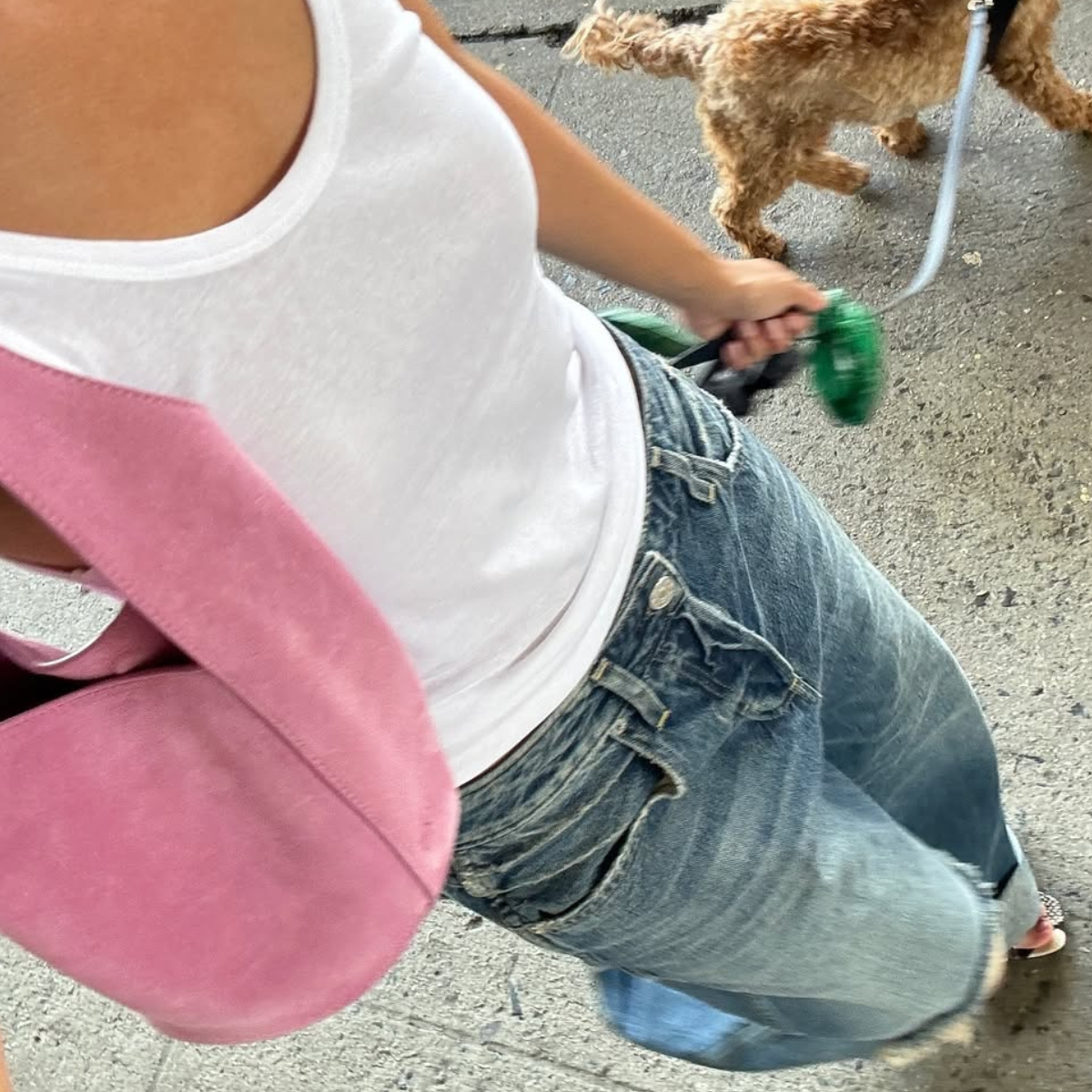 The Anti-Skinny-Jeans Summer Outfit Everyone Is Already Wearing
The Anti-Skinny-Jeans Summer Outfit Everyone Is Already WearingEasy, stylish, and editor approved.
By Michelle Scanga
-
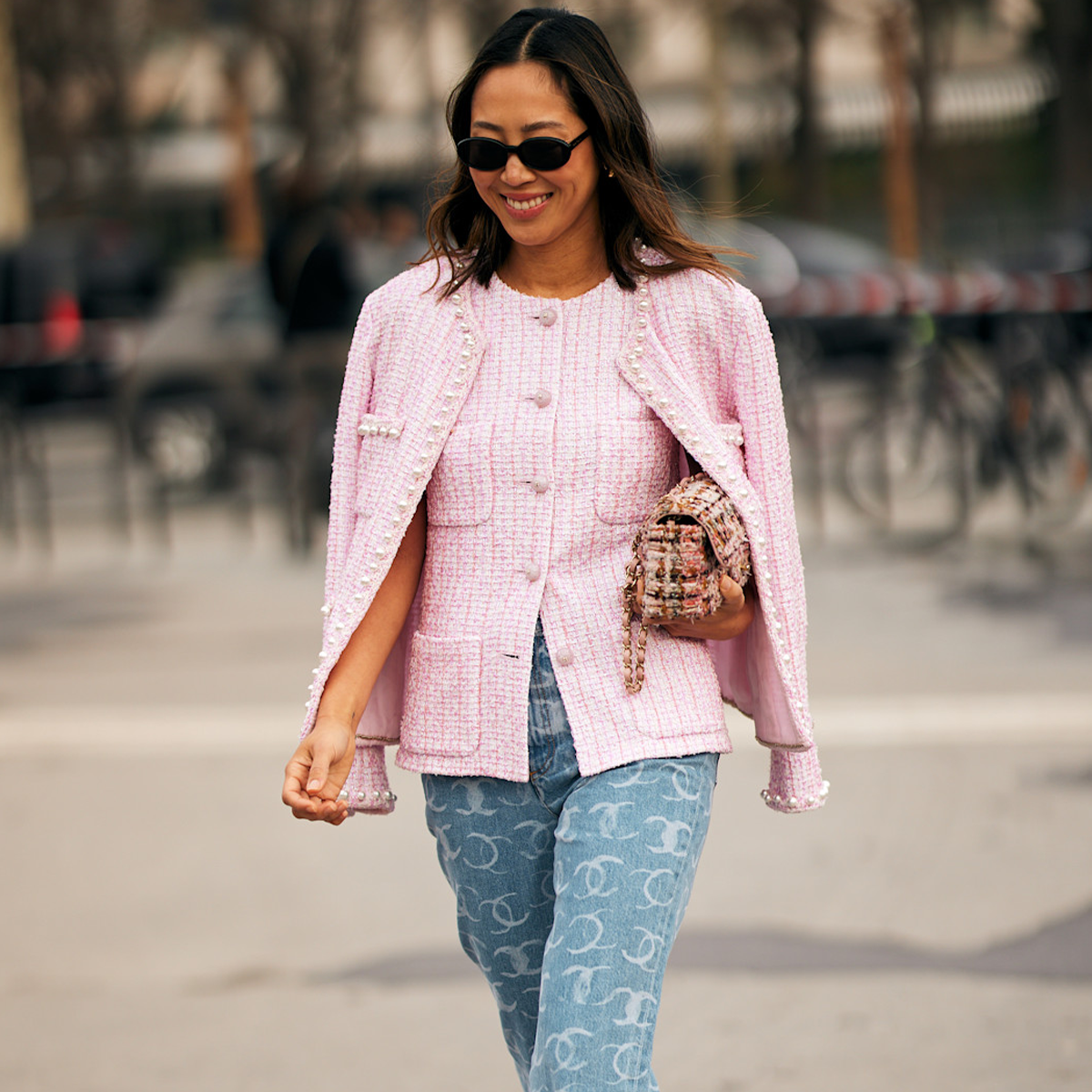 I Live in My Basic Jeans, But I'm Eyeing These 6 Controversial Denim Trends for My Wardrobe
I Live in My Basic Jeans, But I'm Eyeing These 6 Controversial Denim Trends for My WardrobeSkip the straight-legs.
By Ana Escalante
-
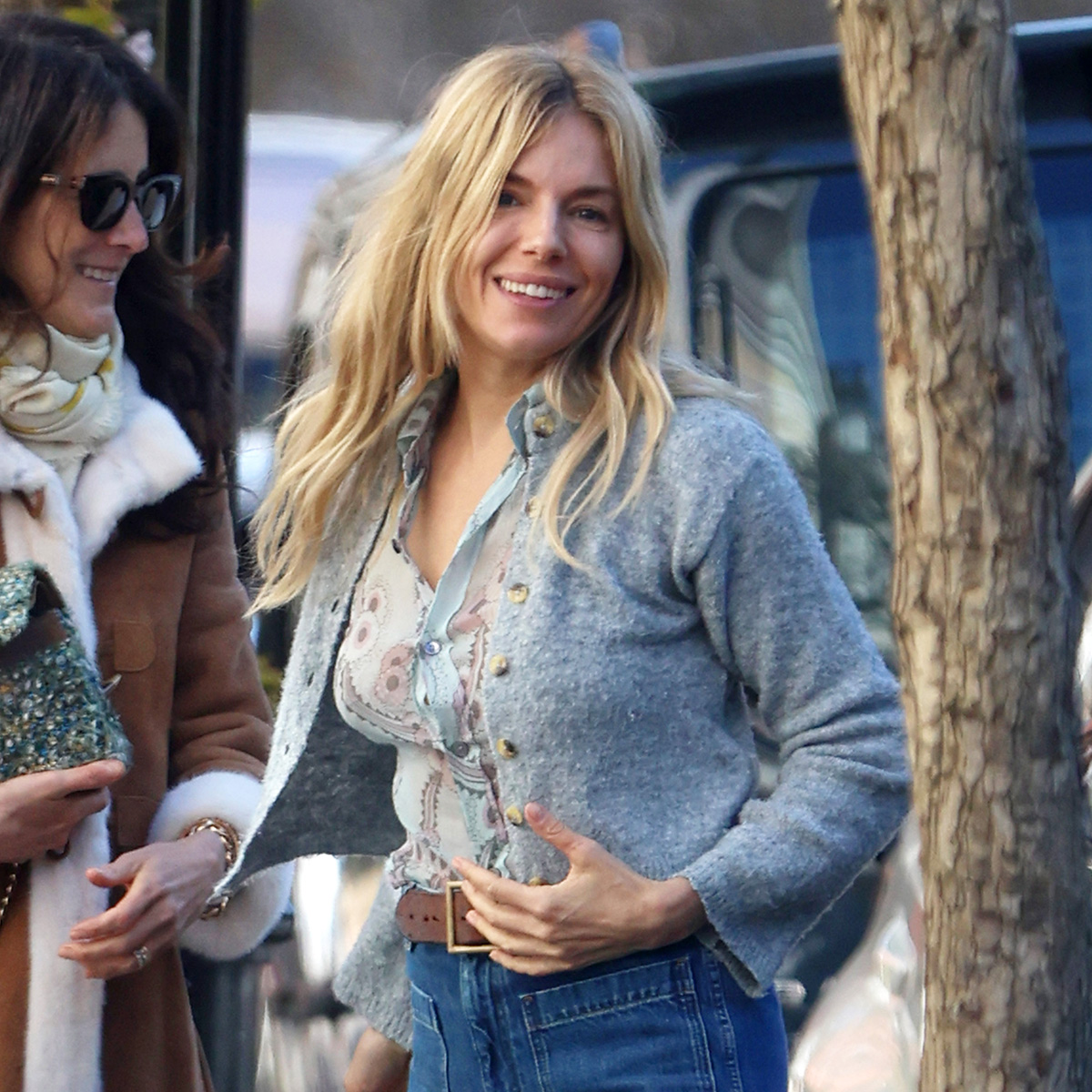 This Summery Denim Trend Is What Everyone Will Order to Wear With Flats
This Summery Denim Trend Is What Everyone Will Order to Wear With FlatsIncluding this editor.
By Allyson Payer
-
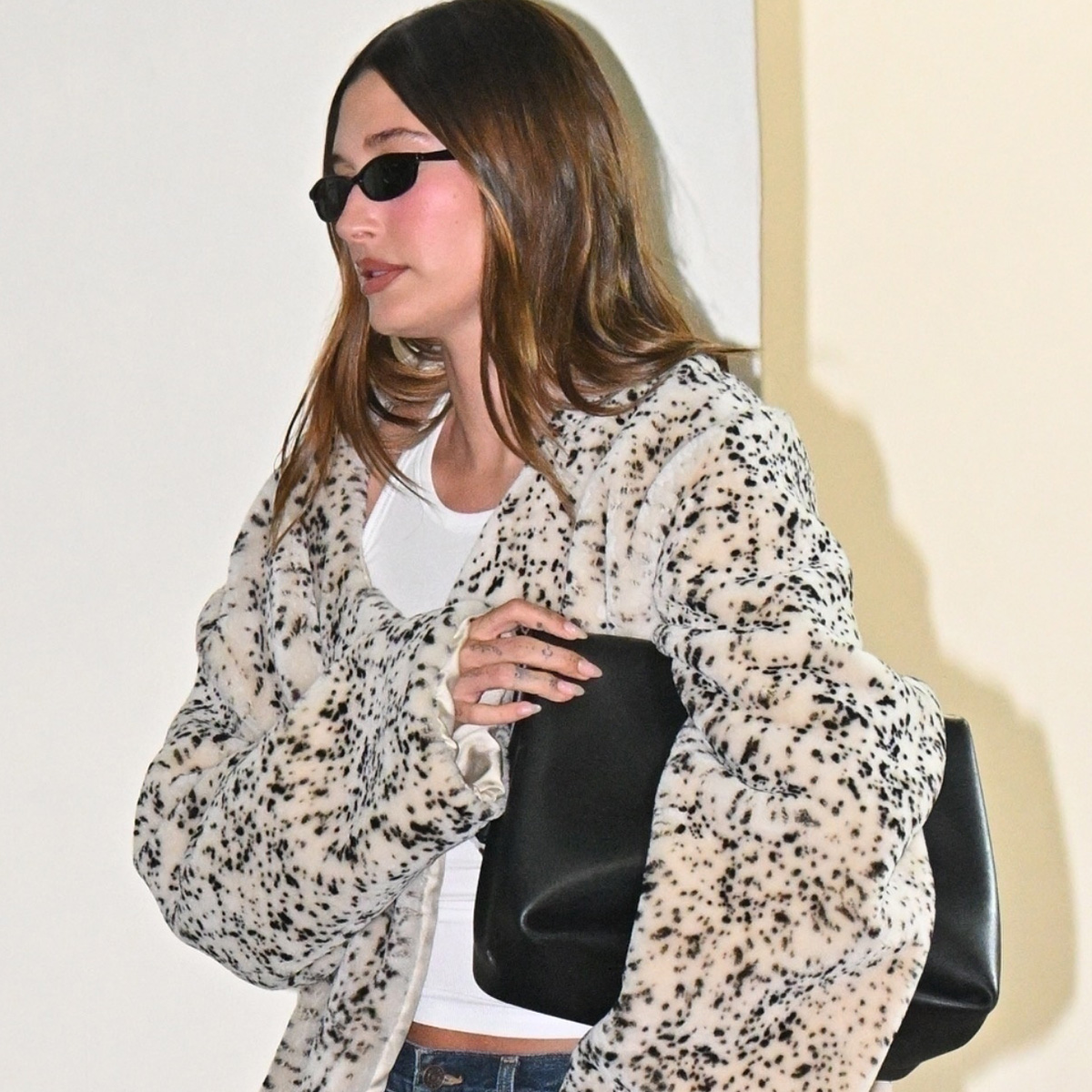 Don't Trust Everything You Hear About the Return of Skinny Jeans—in L.A., This Non-Fitted Denim Trend Still Reigns
Don't Trust Everything You Hear About the Return of Skinny Jeans—in L.A., This Non-Fitted Denim Trend Still ReignsSpotted on Hailey Bieber.
By Eliza Huber
-
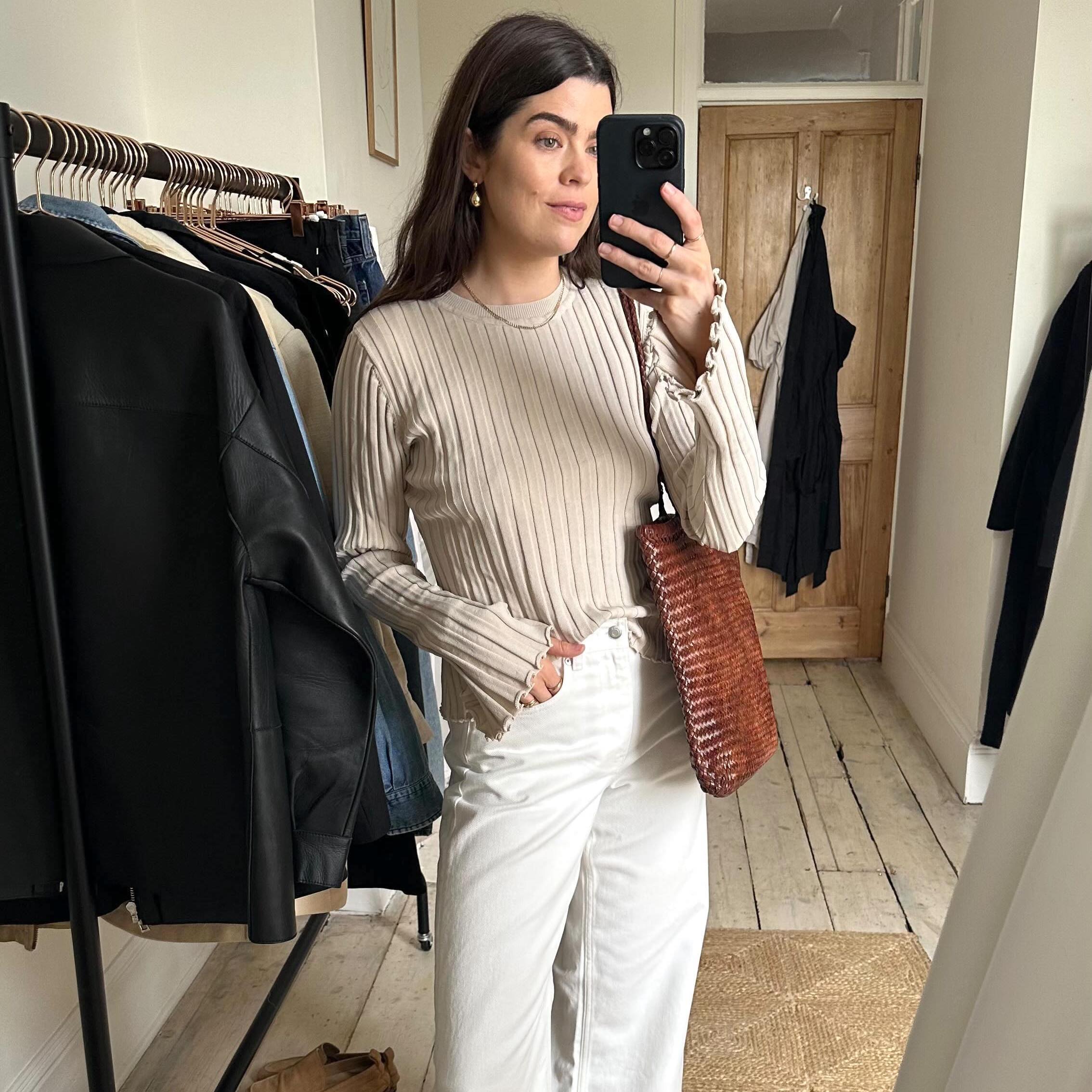 Style Rut? I Have Something for That—33 Stellar Spring Picks From Nordstrom, Zara, and Madewell
Style Rut? I Have Something for That—33 Stellar Spring Picks From Nordstrom, Zara, and MadewellI see chic outfits in your future.
By Jennifer Camp Forbes
-
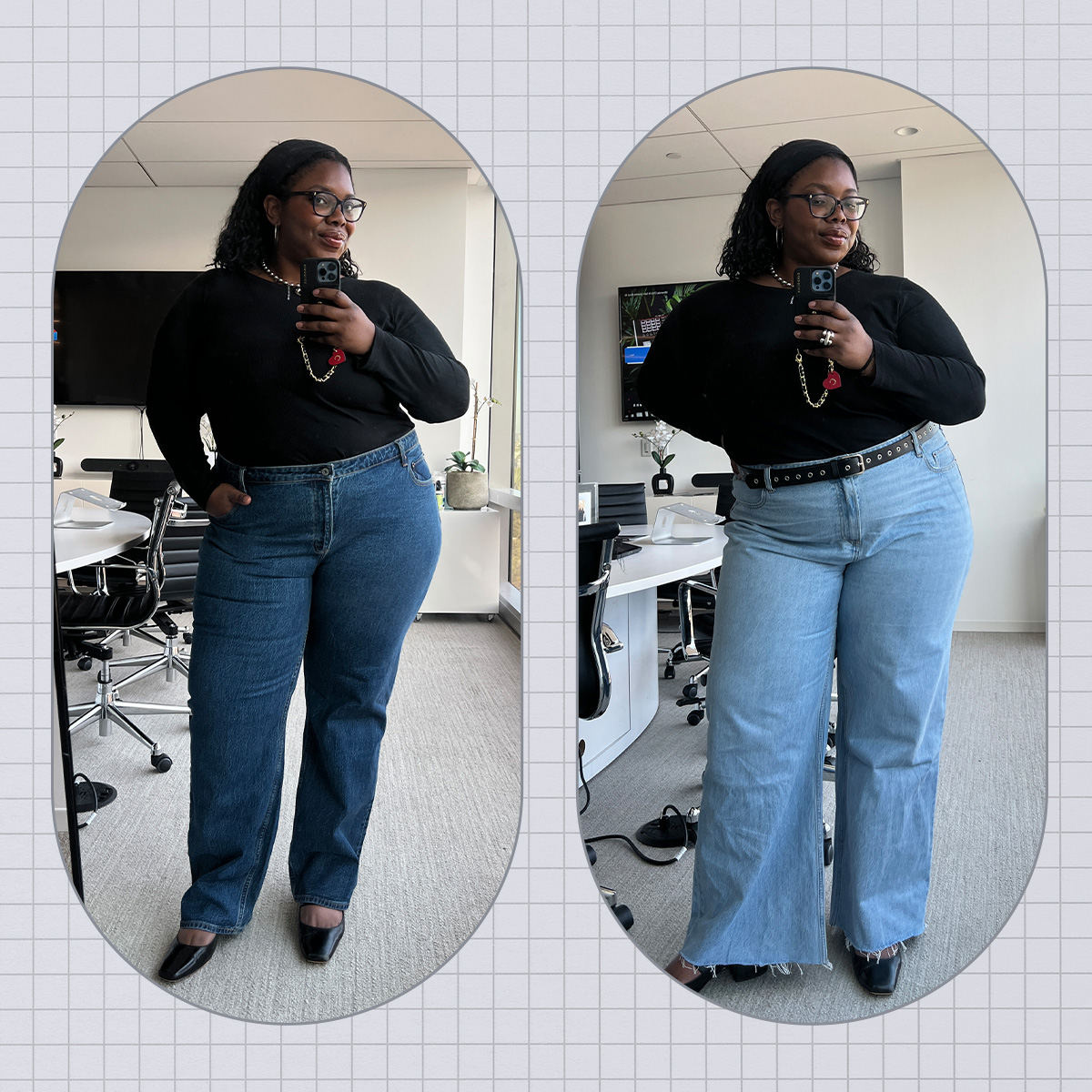 I Tried Abercrombie & Fitch's Curve-Friendly Denim Styles—These Pairs Stood Out
I Tried Abercrombie & Fitch's Curve-Friendly Denim Styles—These Pairs Stood OutThe ultimate A&F curvy jeans review.
By Chichi Offor
-
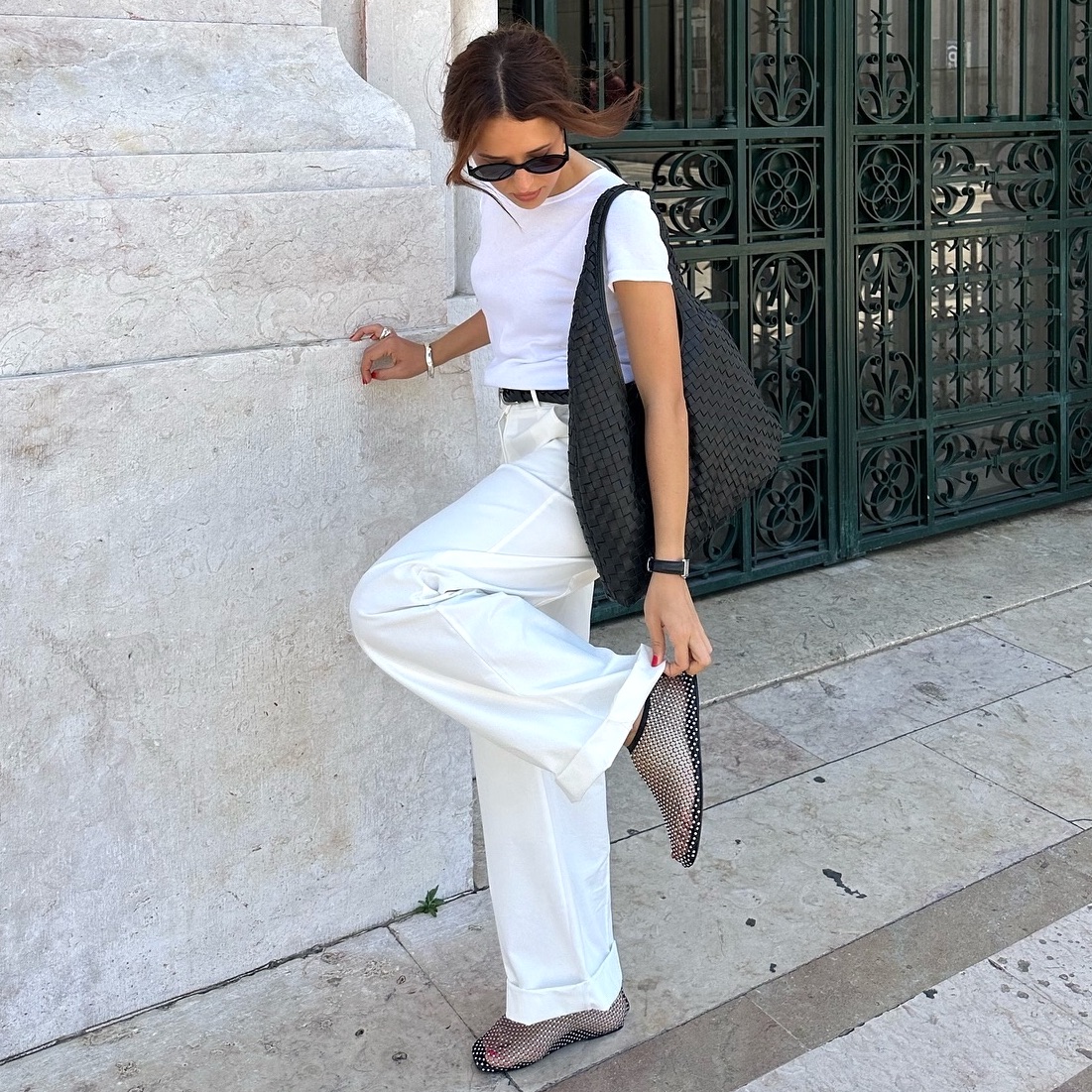 This Is Your Last Chance to Shop the Amazon Big Spring Sale—31 Chic Finds Not to Miss
This Is Your Last Chance to Shop the Amazon Big Spring Sale—31 Chic Finds Not to MissSo good even Levi's jeans are on sale.
By Jennifer Camp Forbes
